Compare SalesForce Commerce Cloud VS Adobe Commerce (Magento)







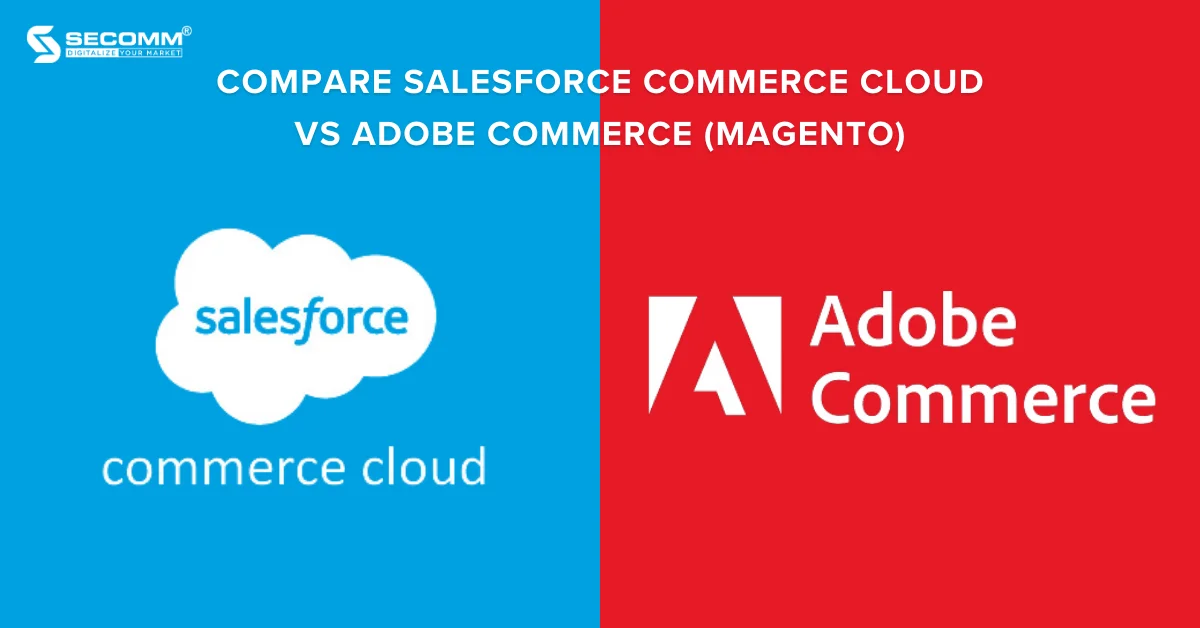
Salesforce Commerce Cloud and Adobe Commerce (Magento) are two leading platforms in the field of eCommerce, trusted by many large enterprises. However, both of these platforms have significant differences.
Let’s explore the important aspects of both with SECOMM to help businesses decide which platform is suitable for the brand’s business needs.
1. Overview
What is Salesforce Commerce Cloud?
Salesforce Commerce Cloud, formerly known as Demandware, is a cloud-based eCommerce platform. Salesforce Commerce Cloud operates on the SaaS (Software-as-a-Service) model, providing high scalability and a range of features and capabilities to help businesses create a seamless and effective shopping experience for their customers.
Within Salesforce Commerce Cloud, there are three main editions for building eCommerce websites: Salesforce B2C Commerce, Salesforce B2B Commerce, and most recently, Salesforce B2B2C Commerce.
In the B2C model, there are three solution packages:
- Starter: Based on 1% Gross Merchandise Value (GMV)
- Growth: Based on 2% Gross Merchandise Value (GMV)
- Plus: Based on 3% Gross Merchandise Value (GMV)

Similarly, the B2B model is also divided into 2 solution packages, including:
- Starter: Based on 1% Gross Merchandise Value (GMV)
- Growth: Based on 2% Gross Merchandise Value (GMV)
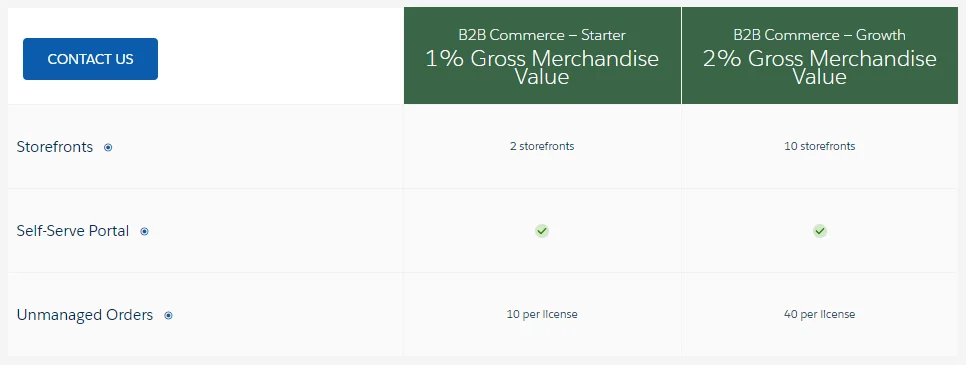
For the B2B2C model, it will be calculated based on 1% Gross Merchandise Value (GMV).
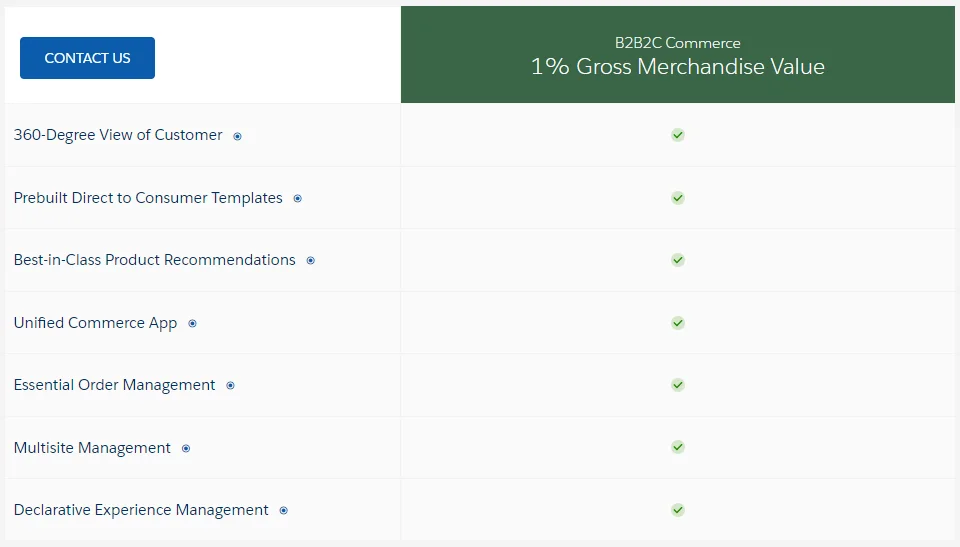
Related article: Top 10 Websites Built On Salesforce Commerce Cloud
What is Adobe Commerce?
Adobe Commerce (formerly known as Magento) is an open-source eCommerce platform designed under the PaaS (Platform-as-a-Service) model, assisting businesses in constructing professional eCommerce websites.
Adobe Commerce can be categorized into two main types:
- On-premise: Installation and management of the website on the company’s servers
- On-cloud: Adobe will host and manage the website for the business
Additionally, Adobe Commerce still supports the Magento Open Source version – a free version that can be downloaded and used by anyone.
Related article: Top 20 eCommerce Websites Using Adobe Commerce (Magento)
In summary, Salesforce Commerce Cloud and Adobe Commerce are two leading eCommerce platforms with significant differences.
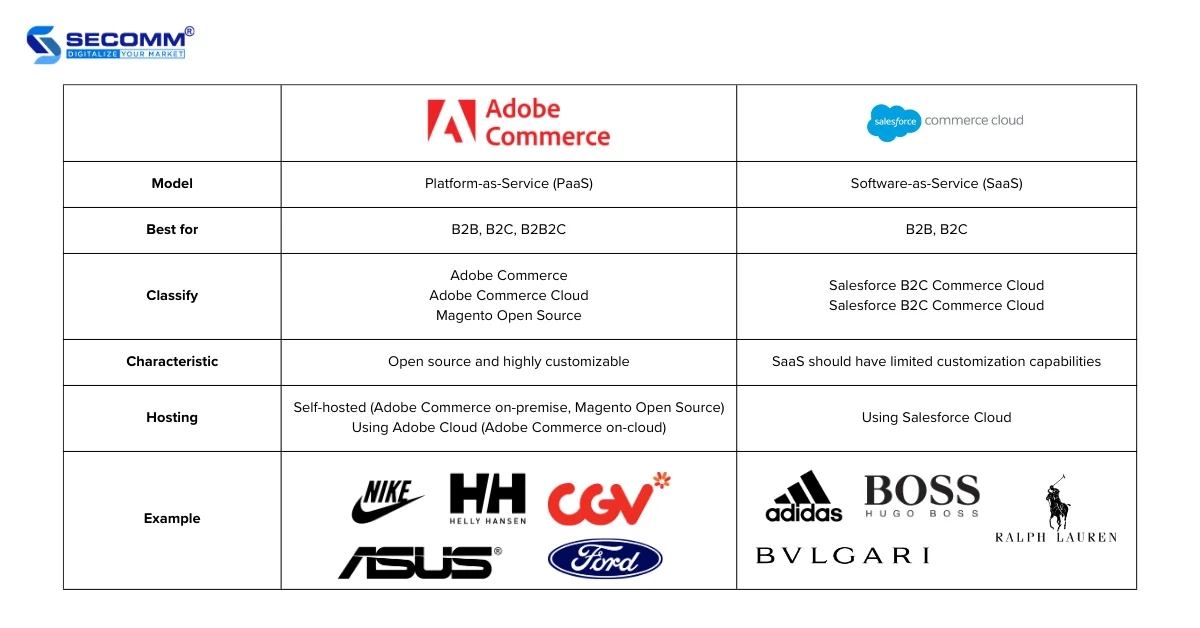
2. Cost Comparison
Salesforce Commerce Cloud Cost
The cost of Salesforce Commerce Cloud depends on various factors but largely hinges on the scale of the business.
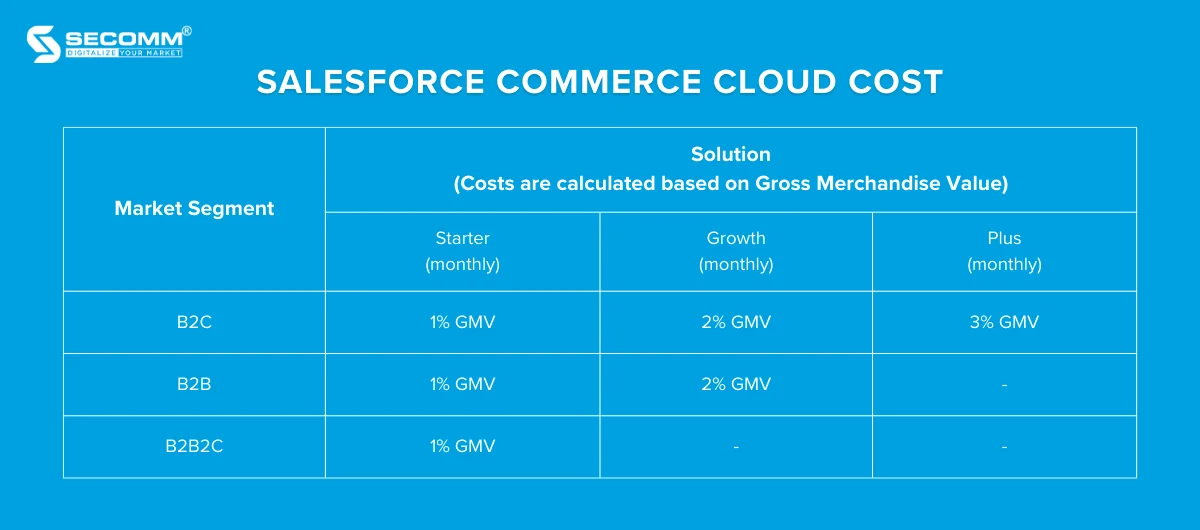
Operating as a SaaS solution, businesses pay a monthly fee based on the number of users and the revenue generated by the website. Costs start from depending on the GMV, averaging around $2,500 per month and can increase to tens of thousands of dollars for larger enterprises.
Adobe Commerce (Magento)
The cost of Adobe Commerce (Magento) also depends on various factors, including the chosen version and the monthly revenue of the business.
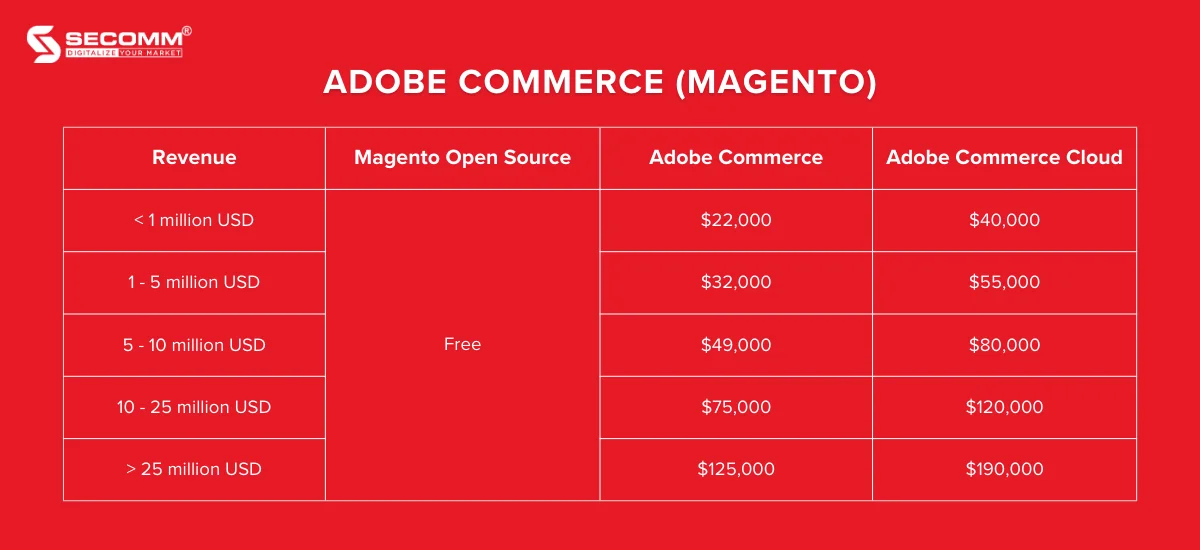
Adobe Commerce is a PaaS solution, meaning businesses must purchase software licenses annually and then pay a monthly fee for hosting and support if needed. License costs start from around $22,000, and hosting costs start from approximately $3,000 per year.
It can be observed that the costs of Salesforce Commerce Cloud and Adobe Commerce (Magento) may vary depending on the business scale, specific requirements, and customization levels.
For instance, for a business with a GMV of $25 million, the platform usage cost for Salesforce Commerce Cloud might be around $250,000/month, whereas for Adobe Commerce Cloud, it could be approximately $120,000/month.
In general, Salesforce Commerce Cloud tends to have higher costs compared to Adobe Commerce.
Related article: The Cost Of Building An Adobe Commerce (Magento) Website
3. Architecture Comparison
Adobe Commerce (Magento) is built on an open-source architecture, allowing high customization and flexibility. Users can modify a significant amount of source code, making this platform suitable for complex eCommerce needs.
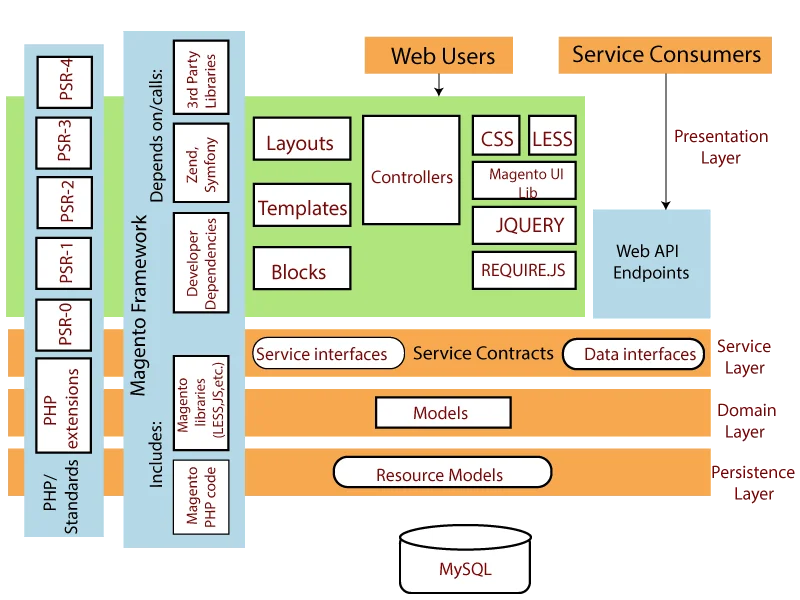
Salesforce Commerce Cloud utilizes a cloud-native, multi-tenant architecture. While this architecture provides significant customization capabilities, it is less flexible for modifying deep code segments compared to open-source architectures like Adobe Commerce (Magento).
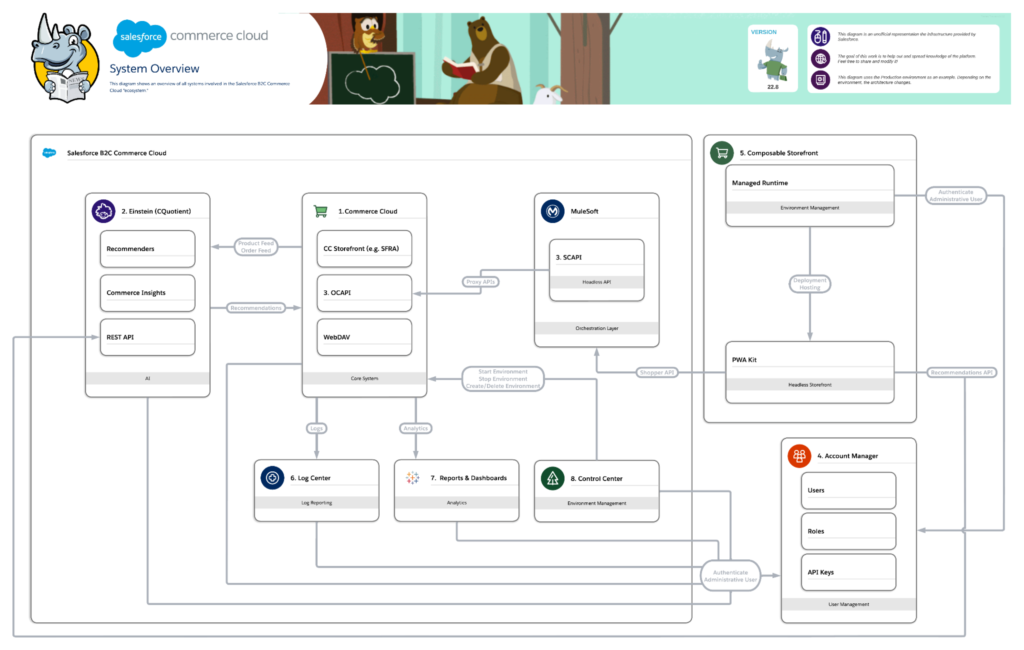
4. Ecosystem Comparison
Salesforce Commerce Cloud is part of Salesforce, the leading Customer Relationship Management (CRM) platform today. Salesforce is renowned for its CRM services, including sales, customer, and marketing management.
Consequently, Salesforce Commerce Cloud seamlessly integrates with Salesforce CRM, providing a unified platform for managing and interacting with customers. This tight integration can be a significant advantage for companies heavily reliant on Salesforce for customer management.
Additionally, Salesforce Commerce Cloud seamlessly integrates with the Customer 360 ecosystem, including business management software like data, AI, or third-party utilities partnered with Salesforce.

On the other hand, Adobe Commerce Cloud is part of the Adobe Experience Cloud, a comprehensive set of solutions for marketing and customer experience.
Thus, Adobe Commerce Cloud integrates with other Adobe tools to support seamless multi-channel customer experience and marketing.
Some commonly used utilities in Adobe Experience Cloud include:
- Experience Manager: A comprehensive content management system (CMS) allowing businesses to create, manage, and distribute content across all channels.
- Analytics: A data analytics platform enabling businesses to collect, analyze, and understand customer data.
- Target: An automated marketing platform helping businesses personalize content and experiences for each customer.
- Audience Manager: A customer data platform (CDP) aiding businesses in collecting and combining customer data from various sources.
- Journey Optimizer: A customer journey management (CJM) platform helping businesses create seamless and effective customer journeys.
- Experience Platform: A customer data platform (CDP) providing access, management, and analysis of customer data from various sources.
Moreover, Adobe Commerce Cloud offers various integration options and supports third-party extensions and plugins. This means Adobe Commerce can integrate with a wide range of systems such as CRM, POS, WMS, OMS, ERP, etc.
5. Feature Comparison
Salesforce Commerce Cloud and Adobe Commerce (Magento) are two widely used leading eCommerce platforms in the market, partially due to their incredibly powerful and diverse feature sets.
Below is a comparison of features between Salesforce Commerce Cloud and Adobe Commerce:
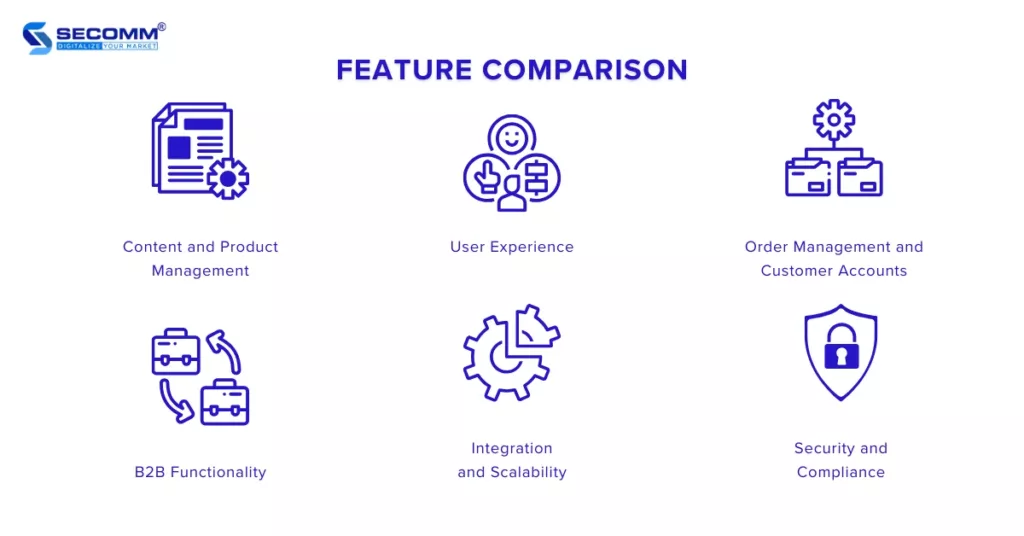
Content and Product Management:
- Salesforce Commerce Cloud: Provides robust content and product management tools. Supports managing rich product catalogues with advanced options to optimize the user experience.
- Adobe Commerce: Also has diverse content and product management capabilities, renowned for high scalability and flexible management of thousands of SKUs.
User Experience:
- Salesforce Commerce Cloud: Integrates intelligent marketing platforms to optimize user experiences based on customer data.
- Adobe Commerce: Utilizes Adobe Experience Cloud to create personalized and flexible online shopping experiences.
Order Management and Customer Accounts:
- Salesforce Commerce Cloud: Integrates order and customer account management features to improve the shopping process and customer interactions.
- Adobe Commerce: Possesses powerful order and customer account management capabilities, supporting multi-channel features and comprehensive customer management.
B2B Functionality:
- Salesforce Commerce Cloud: Provides strong B2B customer management with the ability to track and manage business accounts, batch ordering, and tiered pricing.
- Adobe Commerce: Offers powerful features specifically designed for B2B eCommerce operations. Sellers can operate both traditional and online stores from a single admin panel.
Integration and Scalability:
- Salesforce Commerce Cloud: Integrates well with other Salesforce products and provides additional applications through AppExchange.
- Adobe Commerce: With an open-source architecture, allows flexible integration and source code customization to meet specific business needs.
Security and Compliance:
- Salesforce Commerce Cloud: Ensures high-security standards and compliance with data security regulations.
- Adobe Commerce: Emphasizes security and provides security features to protect customer and business information.
6. Salesforce Commerce Cloud vs Adobe Commerce (Magento): Which is the most suitable platform?
Salesforce Commerce Cloud and Adobe Commerce (Magento) are both powerful eCommerce platforms. However, Salesforce Commerce Cloud is suitable for large enterprises seeking a tightly integrated eCommerce solution with their CRM system.
On the other hand, Adobe Commerce would be a better choice for businesses with high customization needs and a desire for more control over the eCommerce platform.
The selection of the most suitable eCommerce platform for each business will depend heavily on the core needs of the brand.
Looking for a suitable eCommerce Website Development Solution?
With deep expertise and the development of complex eCommerce systems for clients such as Changi Airport Group (Singapore), Trentham Estate (Australia), and The Warehouse (Vietnam), SECOMM understands the challenges in choosing a platform and deploying eCommerce that businesses are facing.
- Comprehensive Understanding: Providing comprehensive eCommerce solutions from consulting, development, and operation to the growth of eCommerce systems.
- Deep Expertise: Over 9 years of experience in deploying complex eCommerce systems for clients from various countries.
- Customized Solutions: Proposing eCommerce solutions, including technological architecture and a suitable team for each business.
- Flexible Progress: Project timelines and schedules are adjusted according to the specific needs of the business.
Contact SECOMM now or call directly at the hotline number (028 7108 9908) for free advice on the eCommerce website building roadmap!






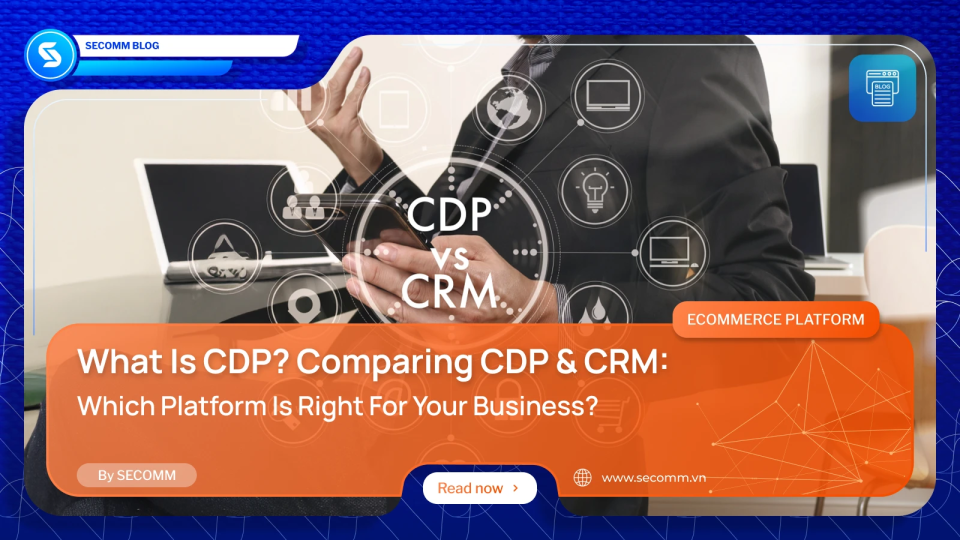
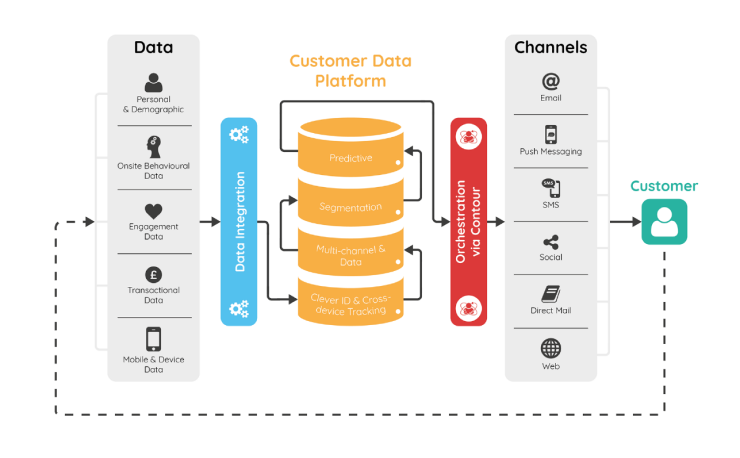
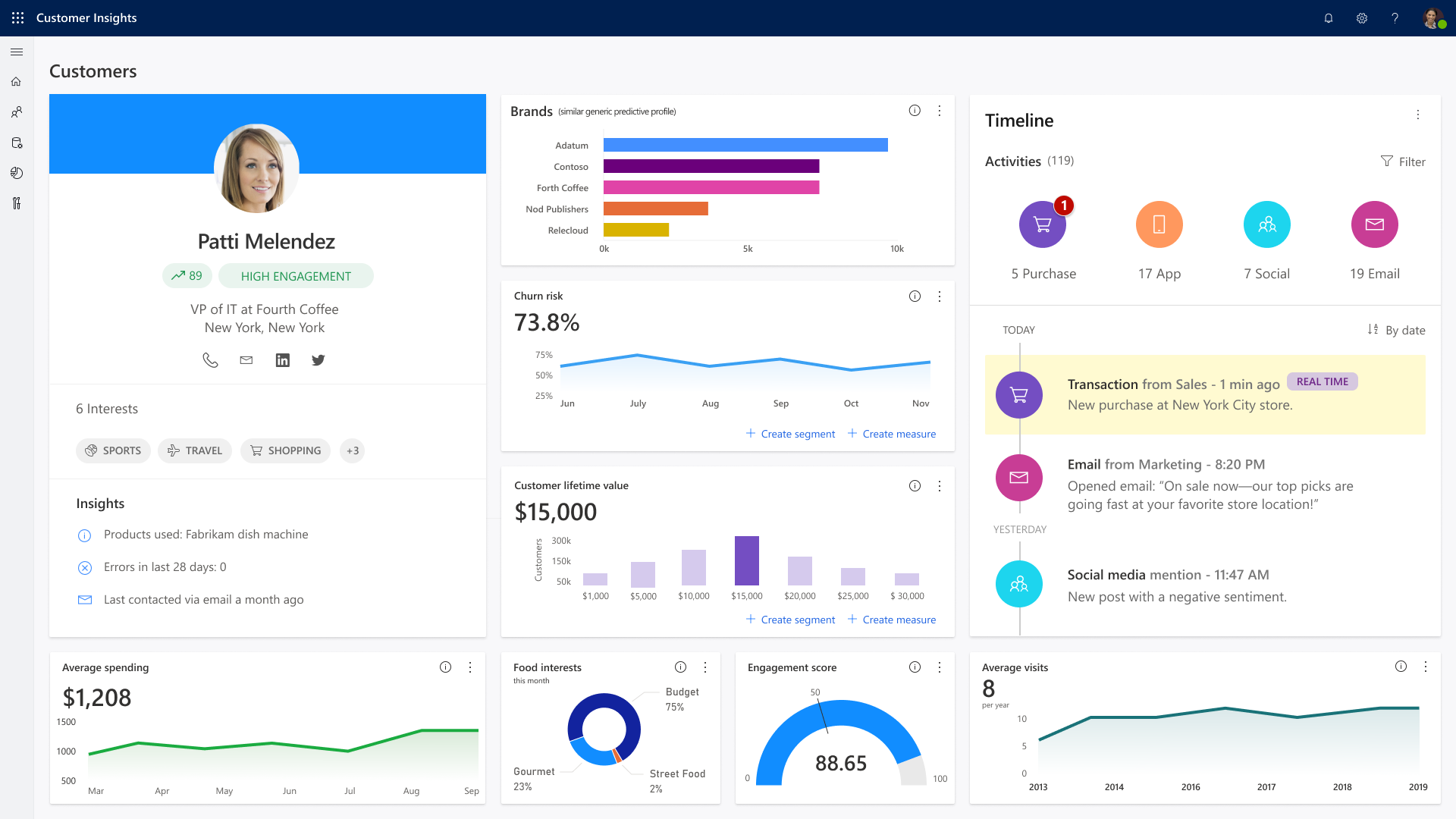





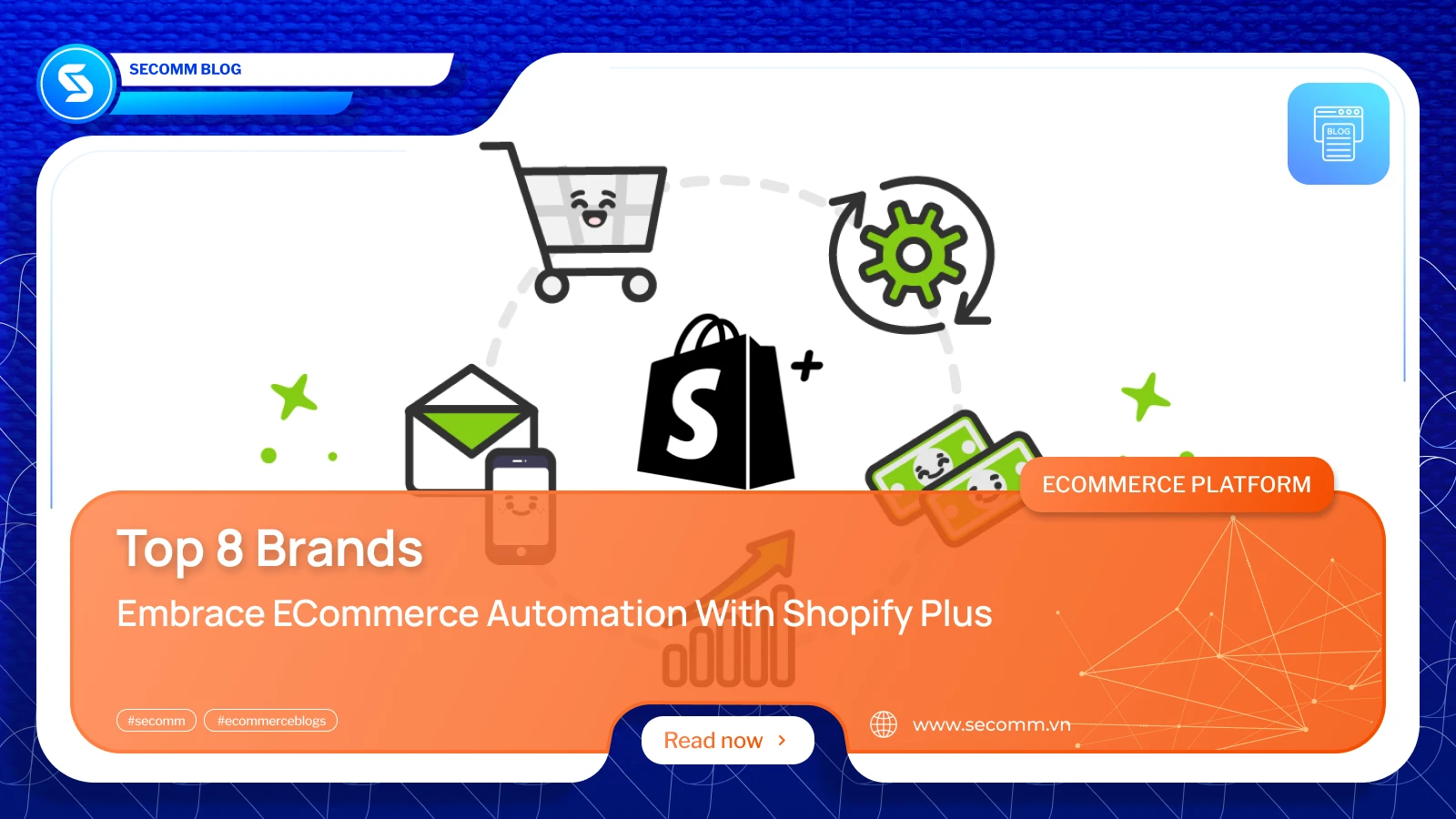





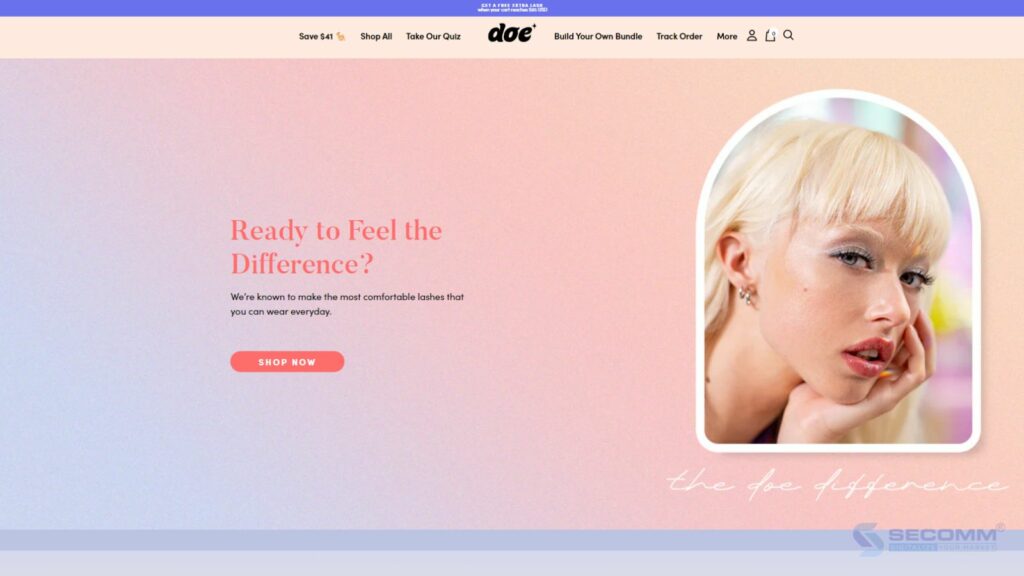


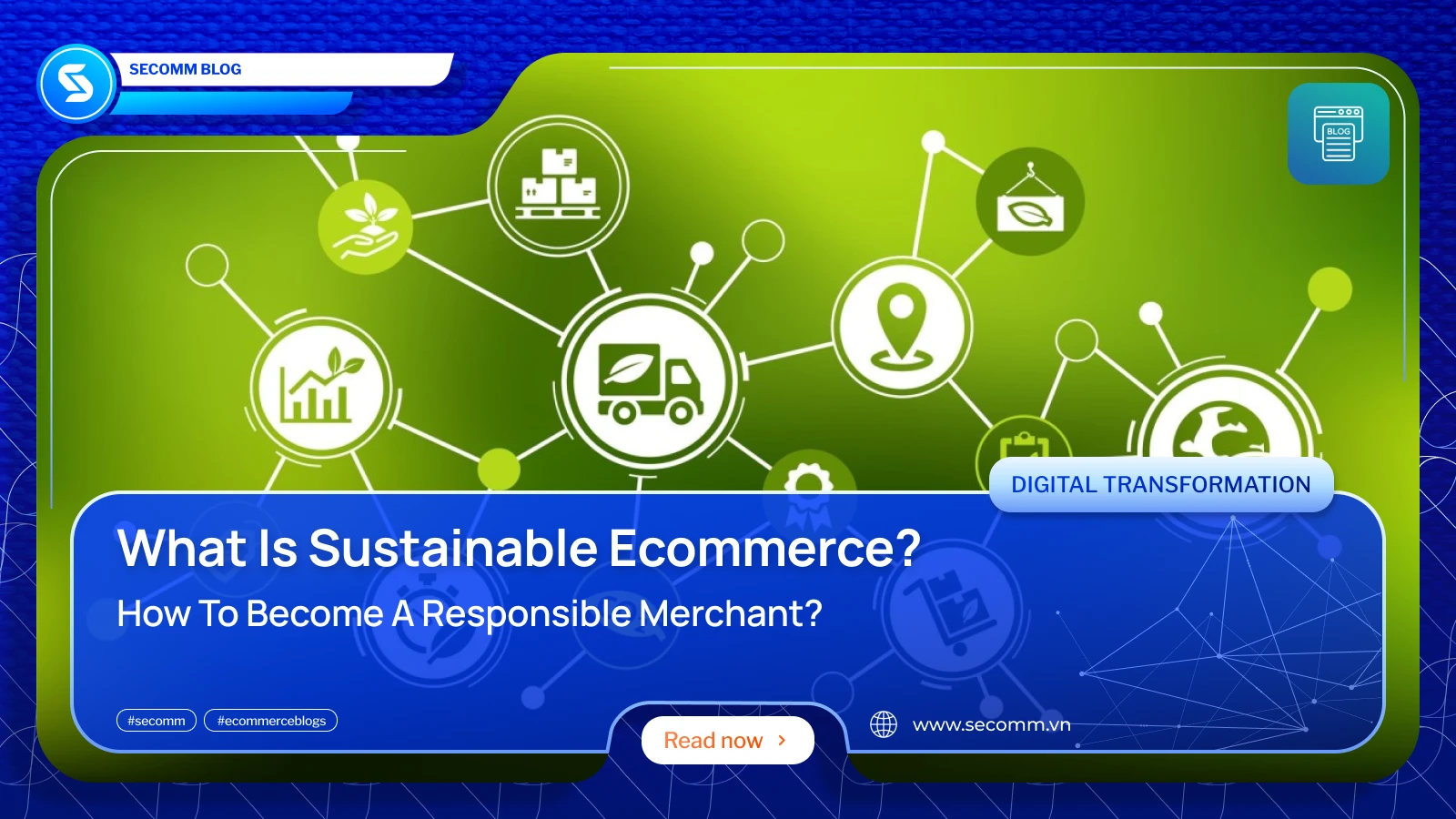
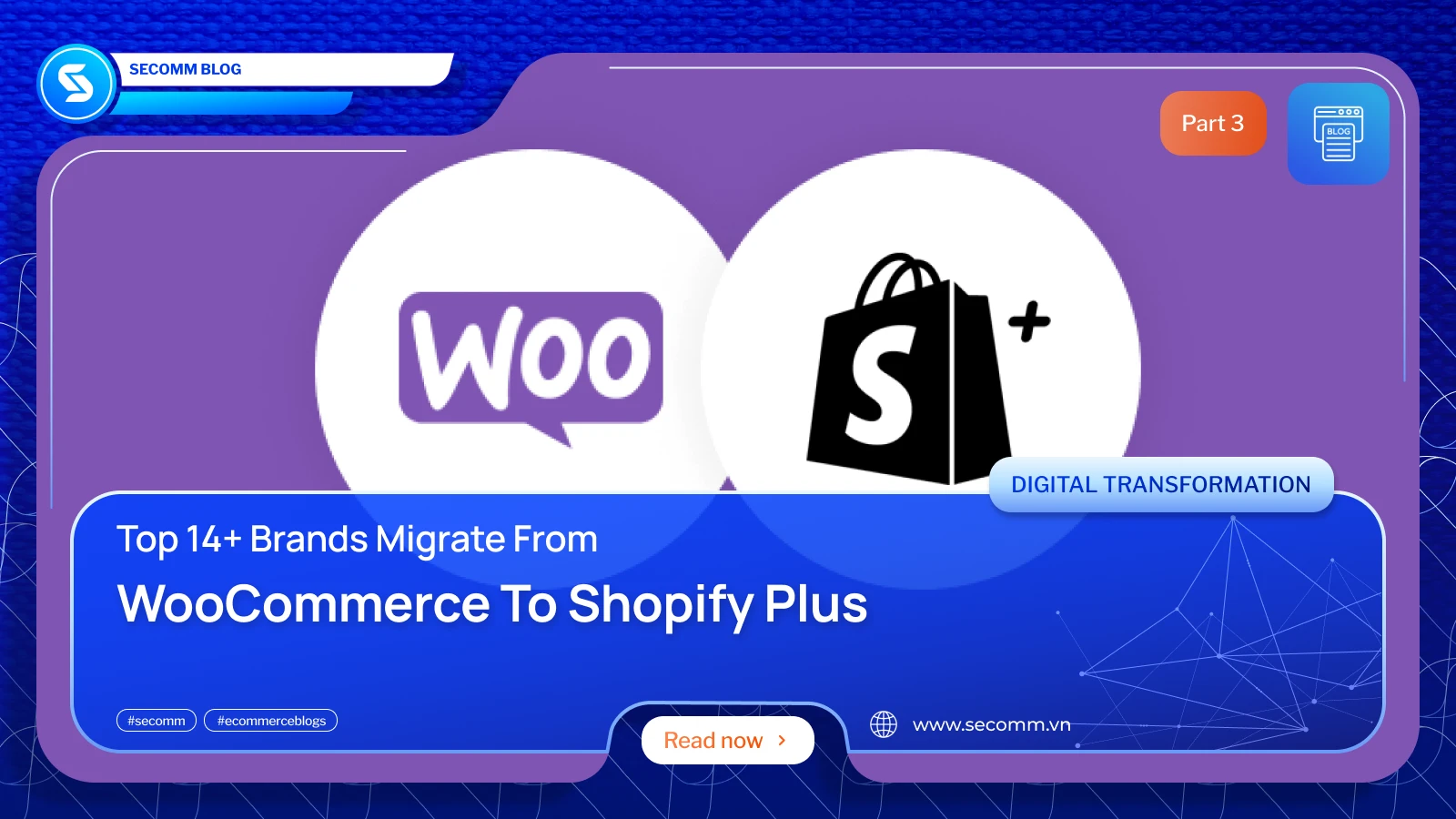
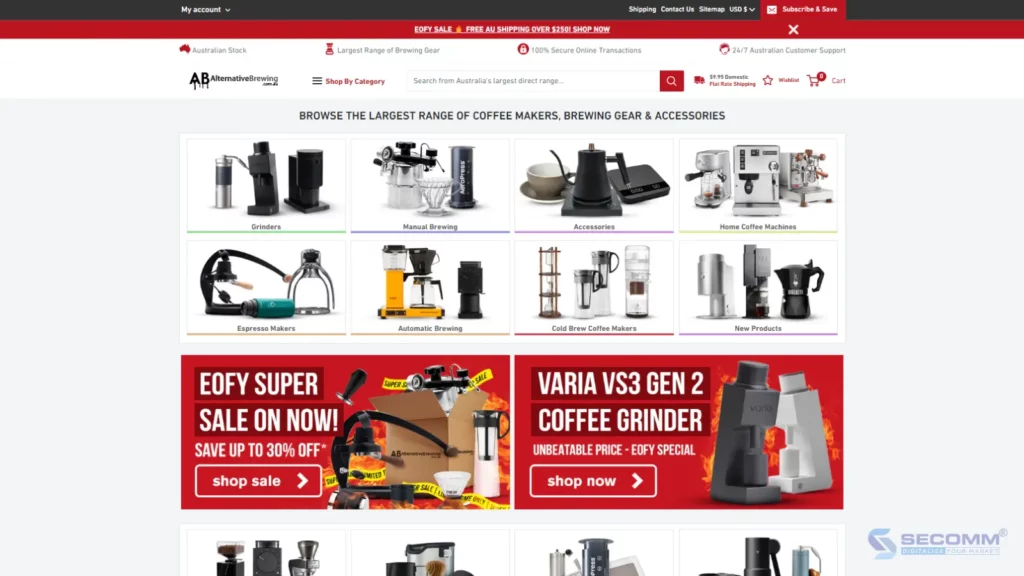



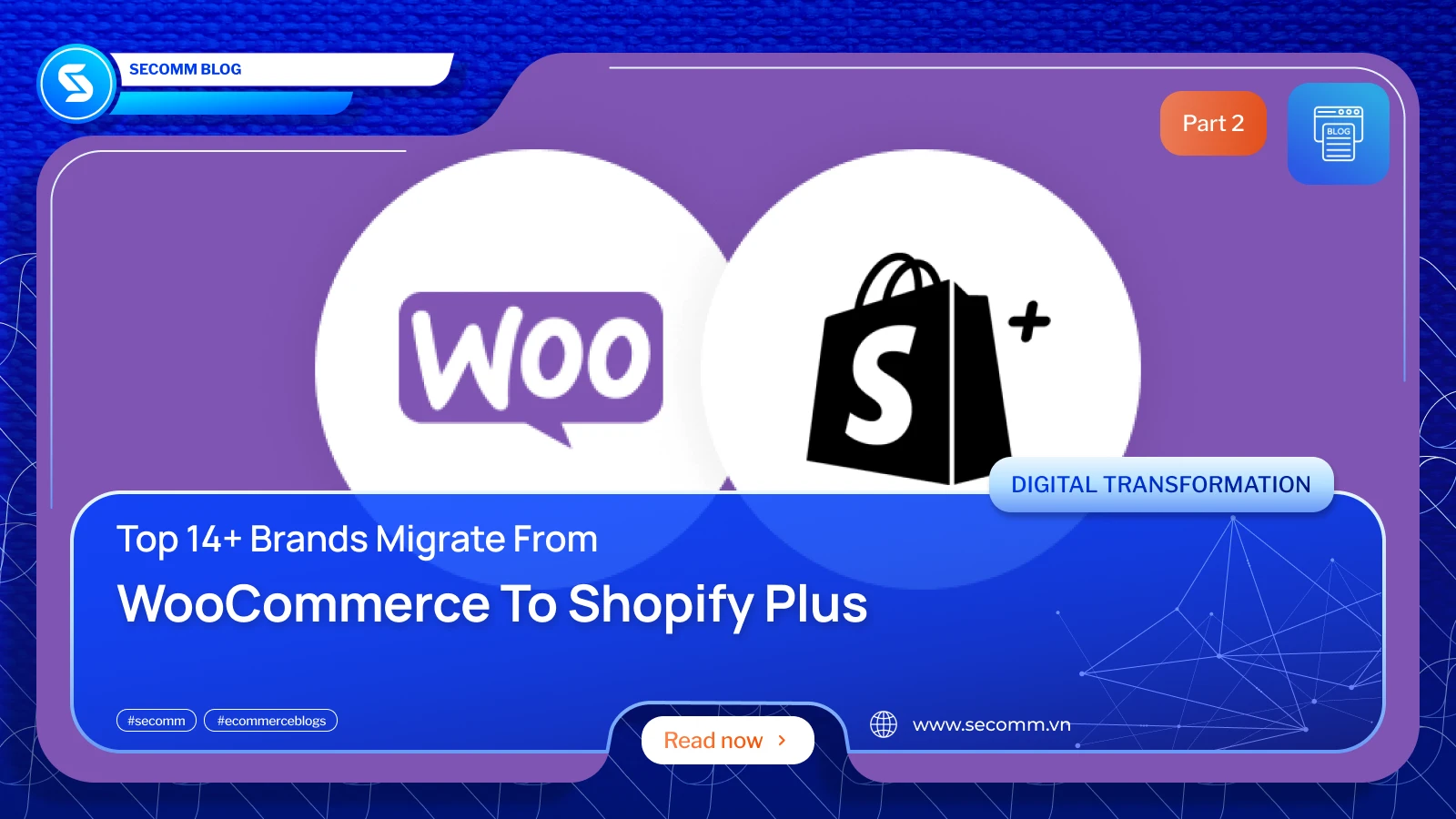

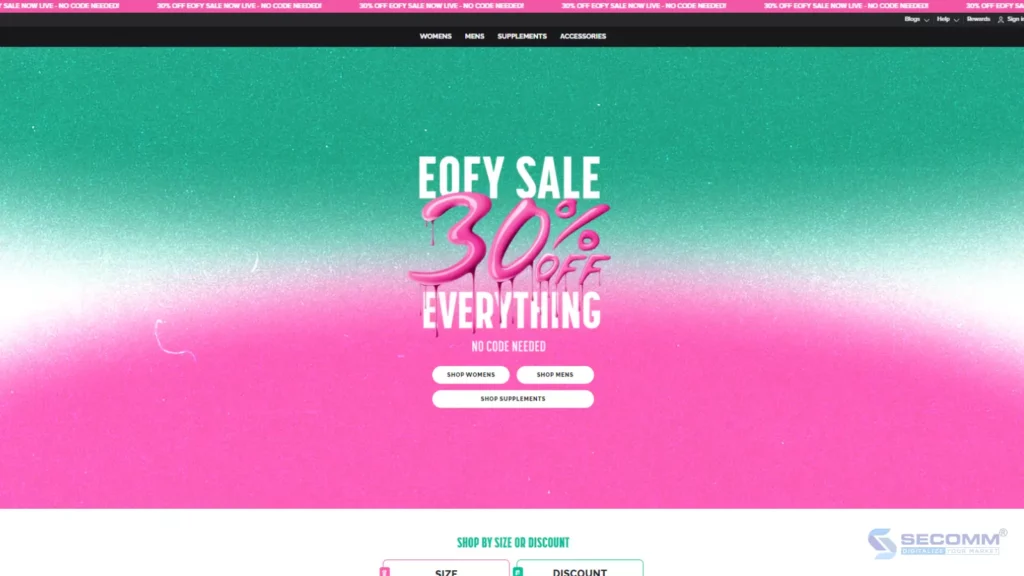



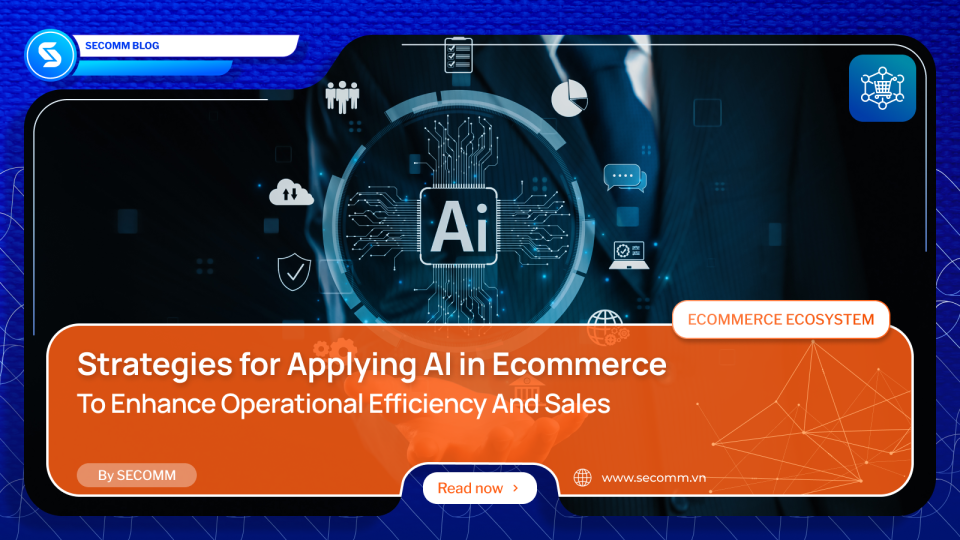

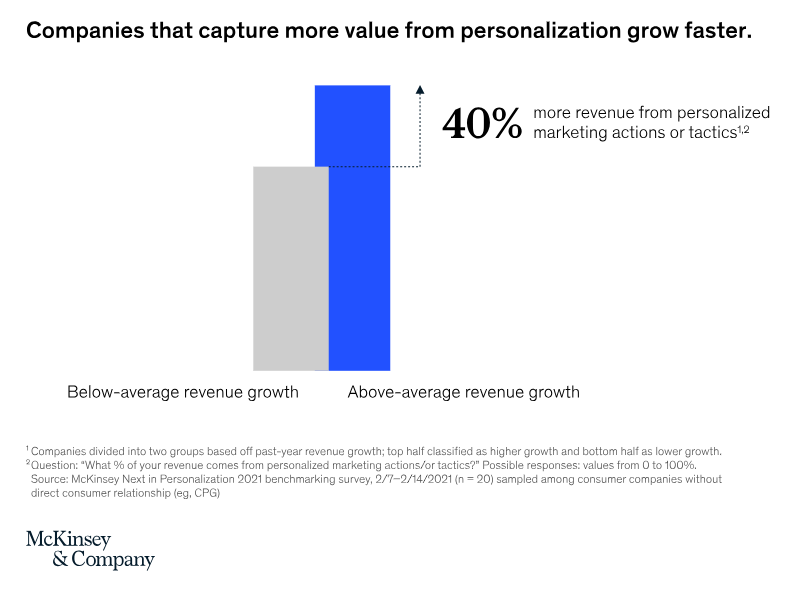
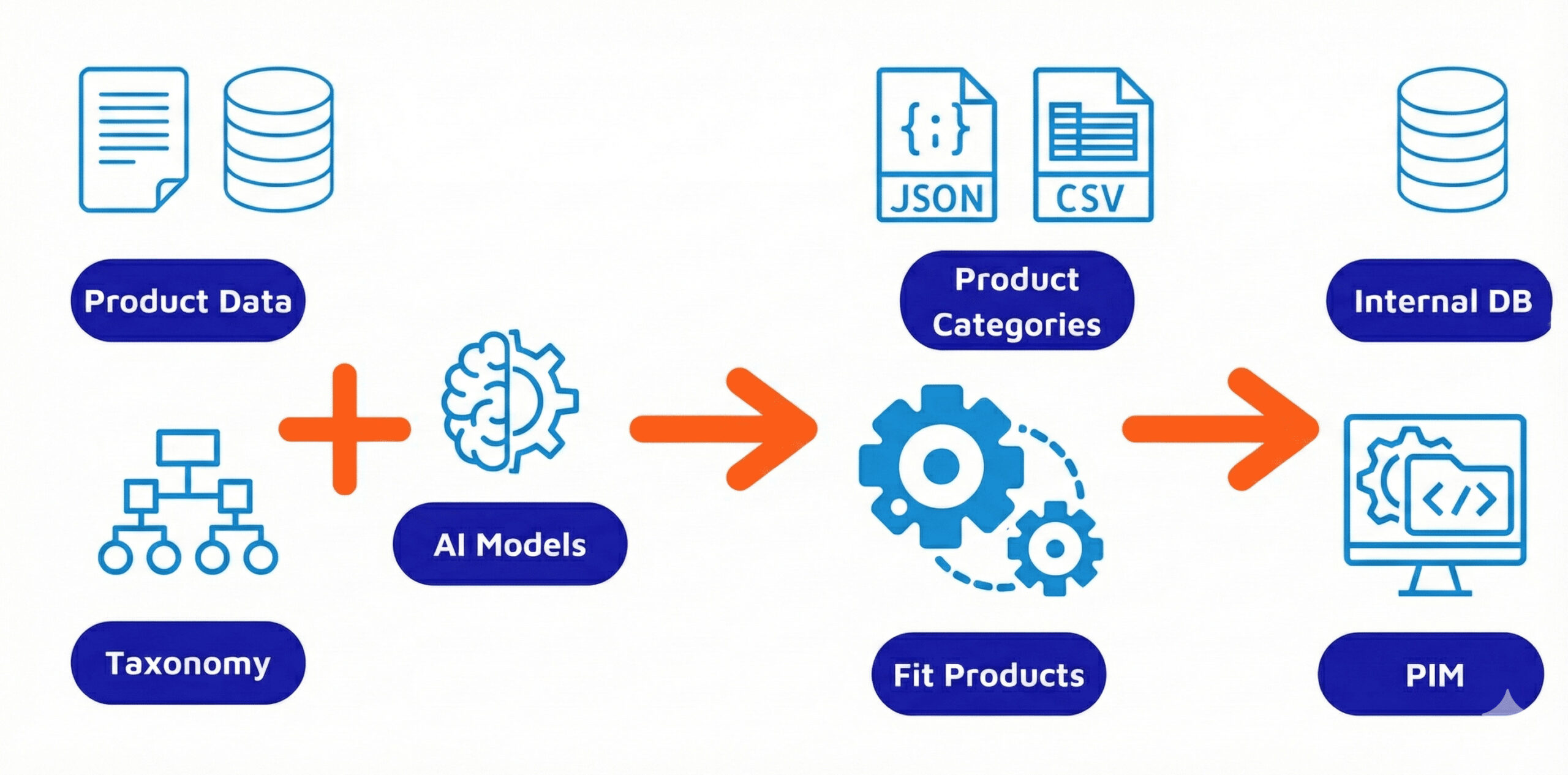
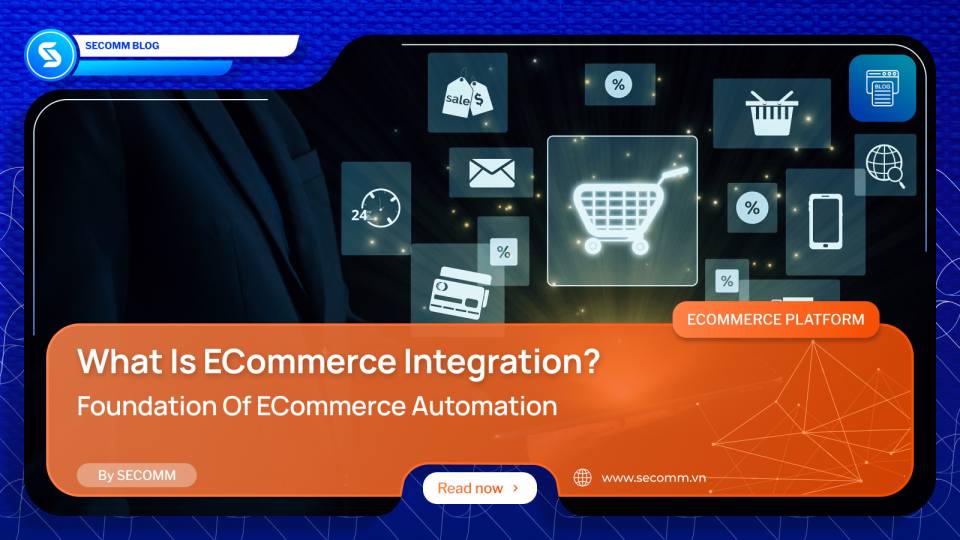
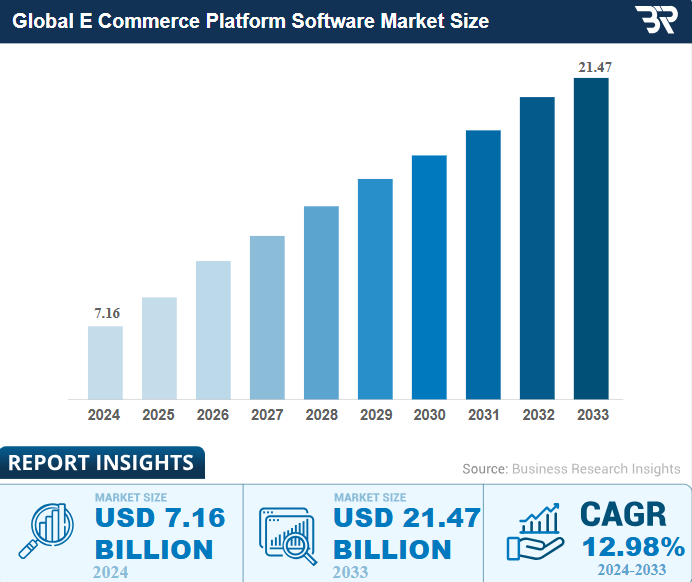

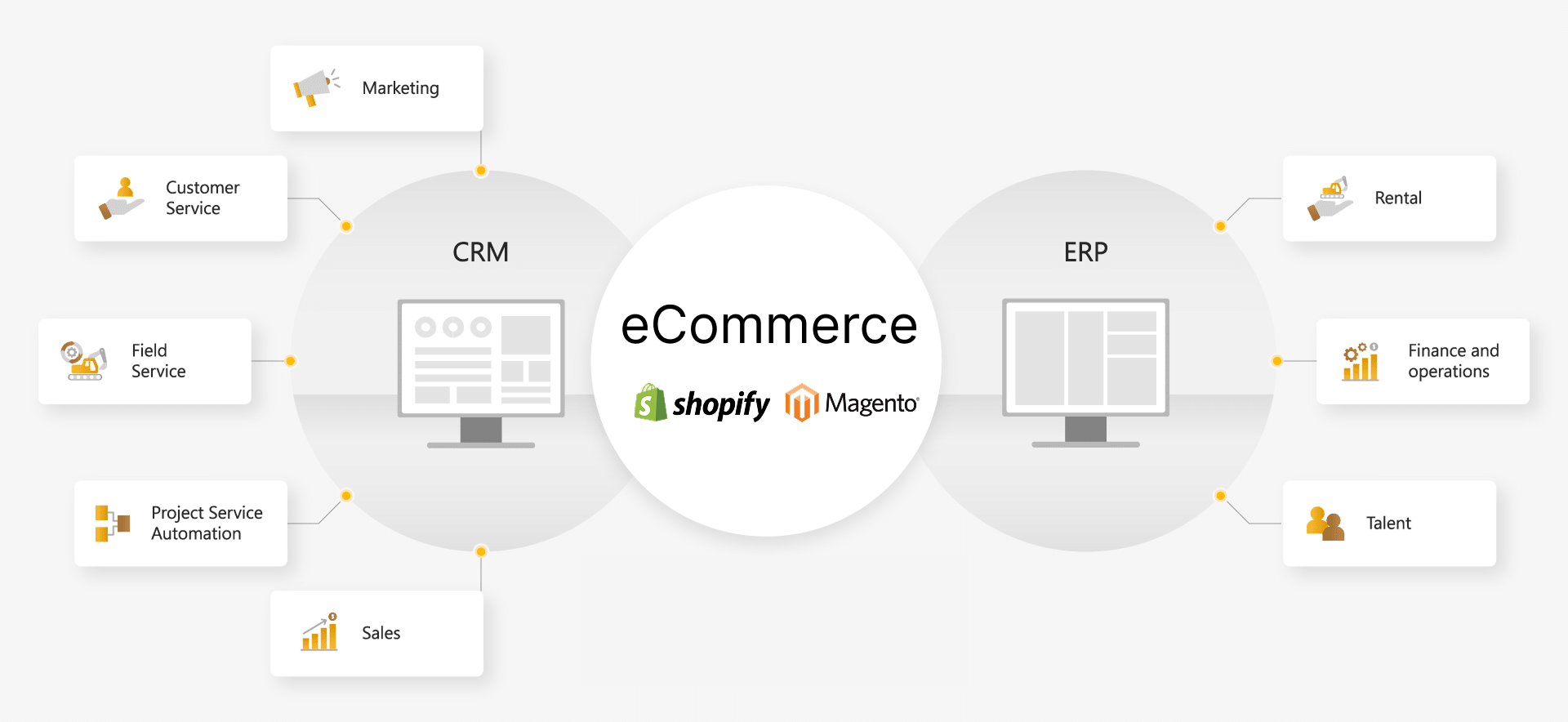
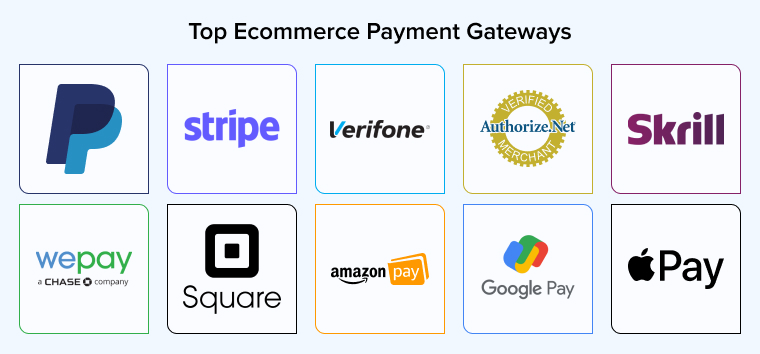
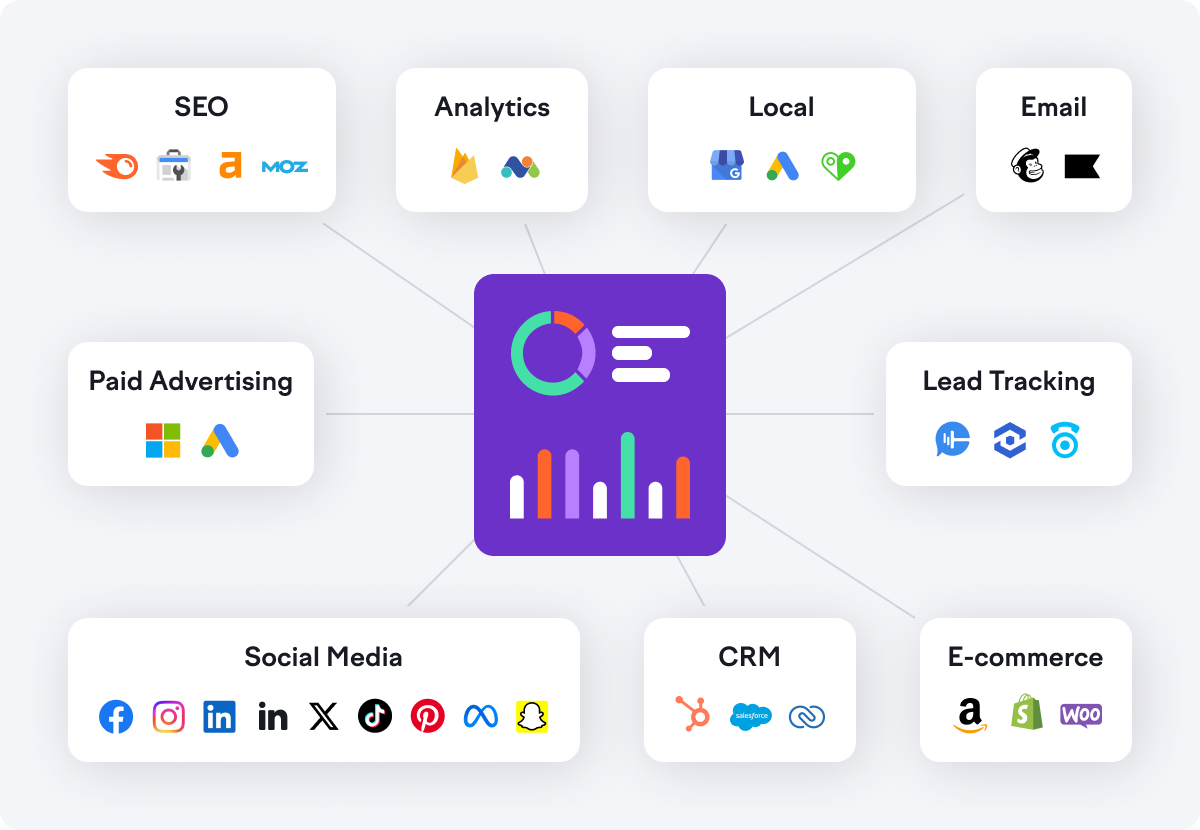
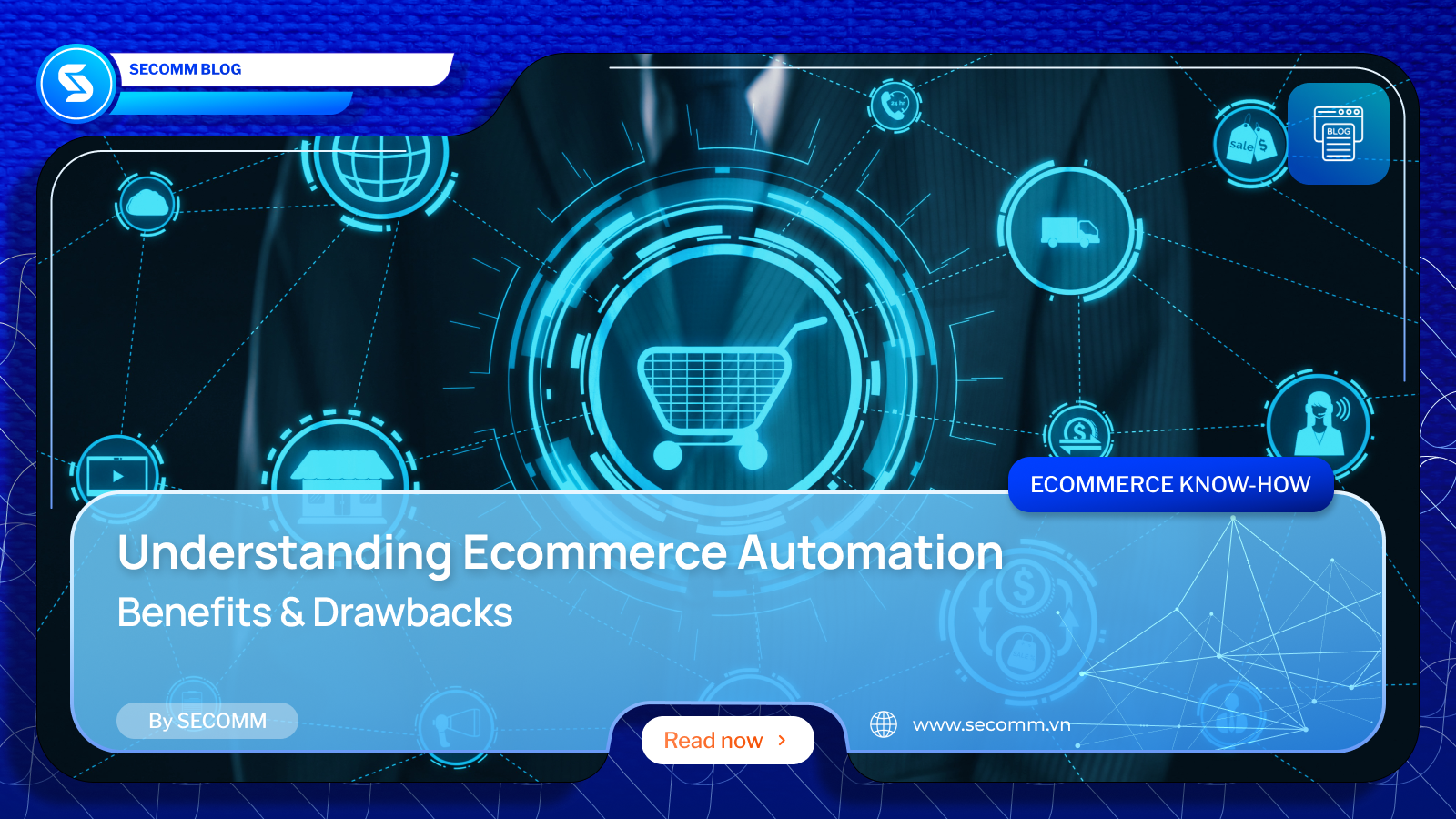
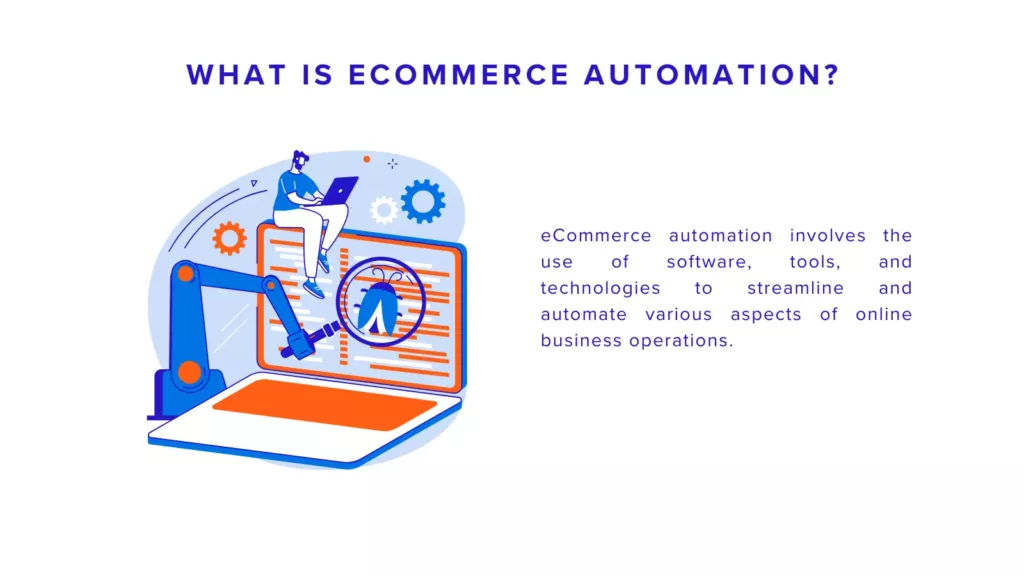
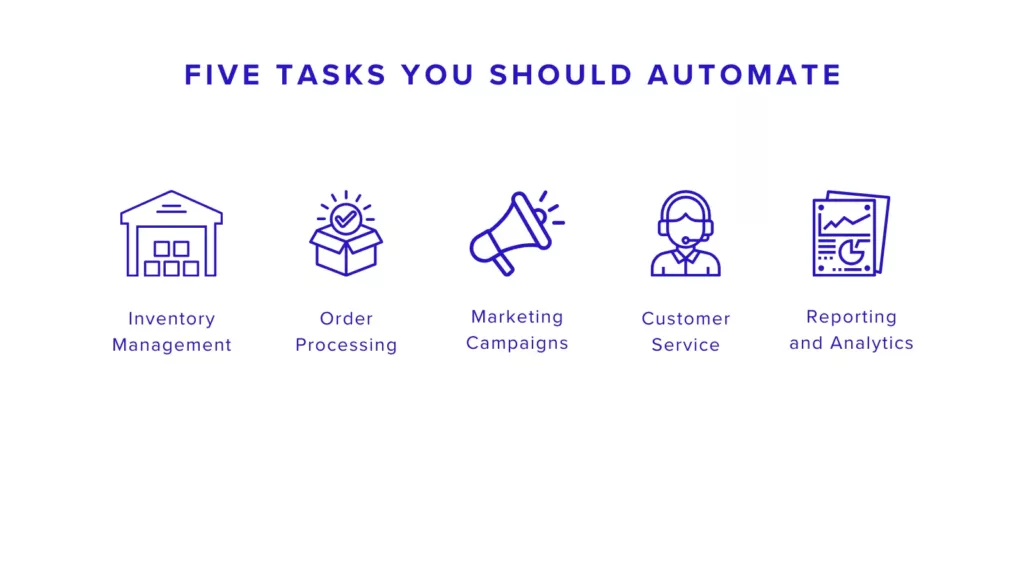
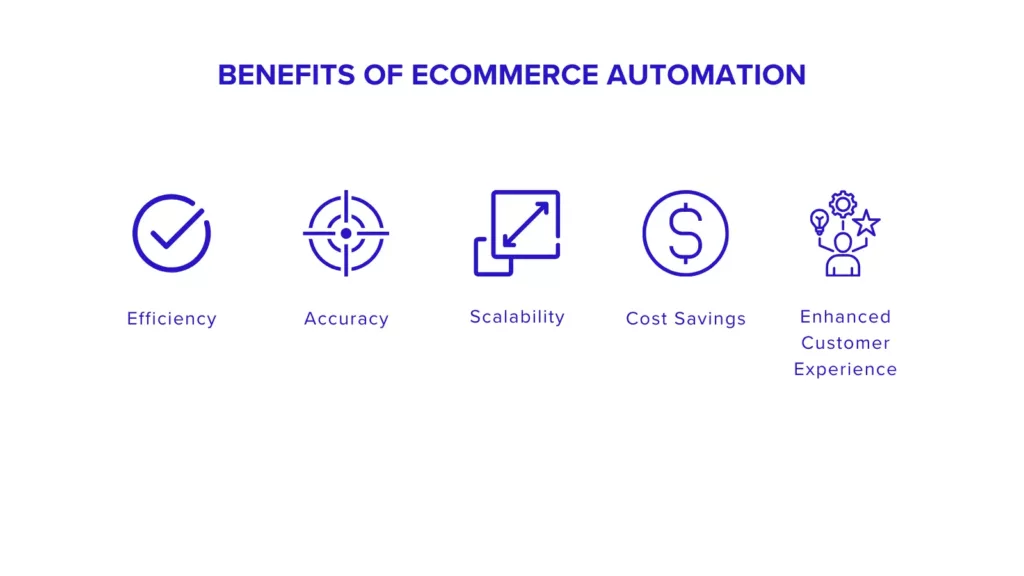
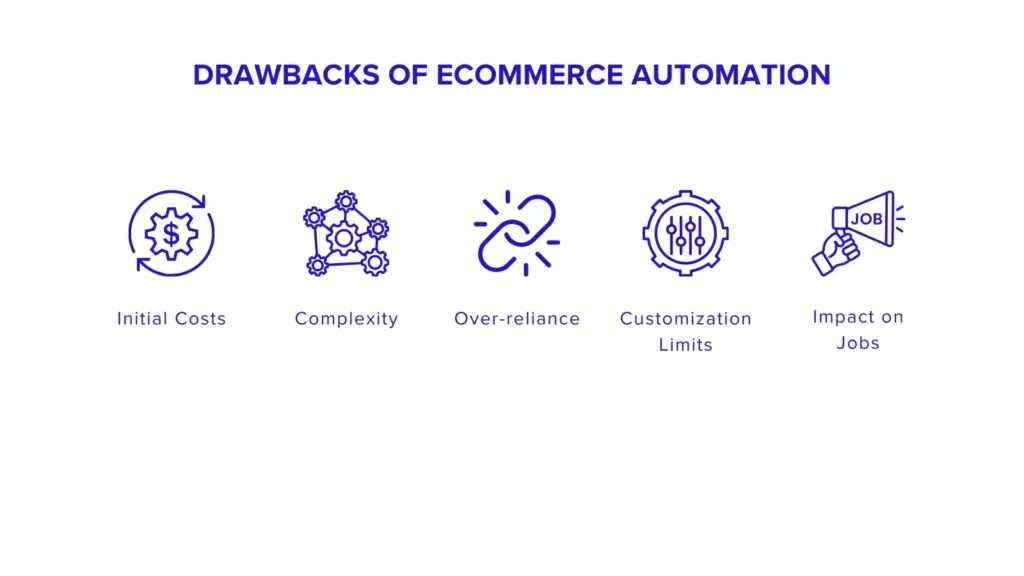

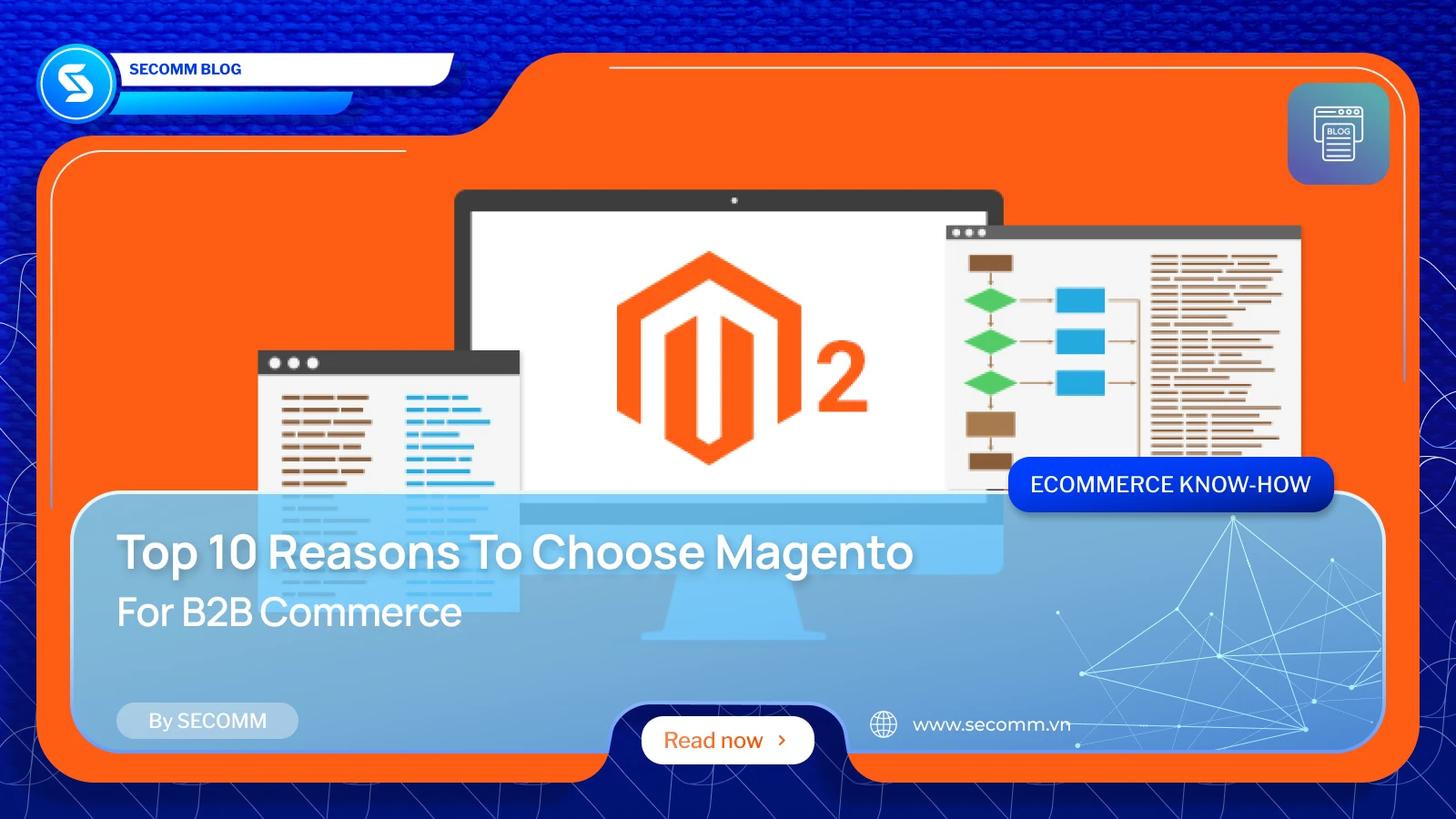
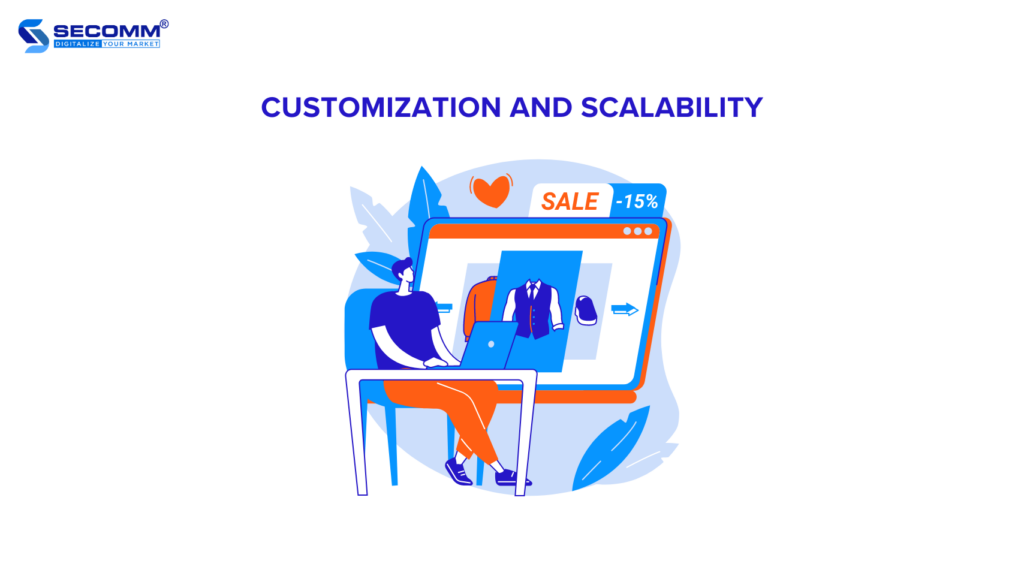
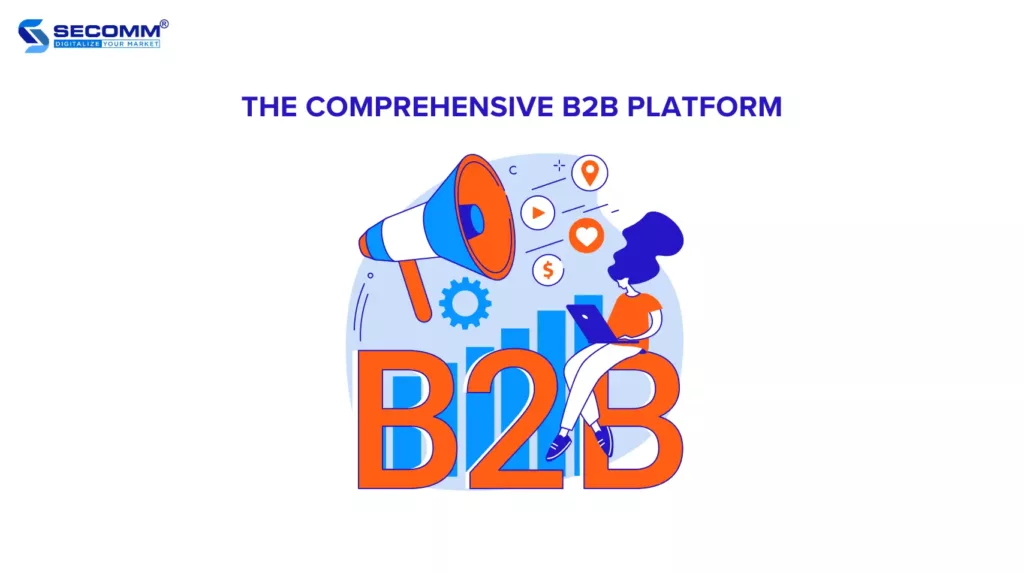
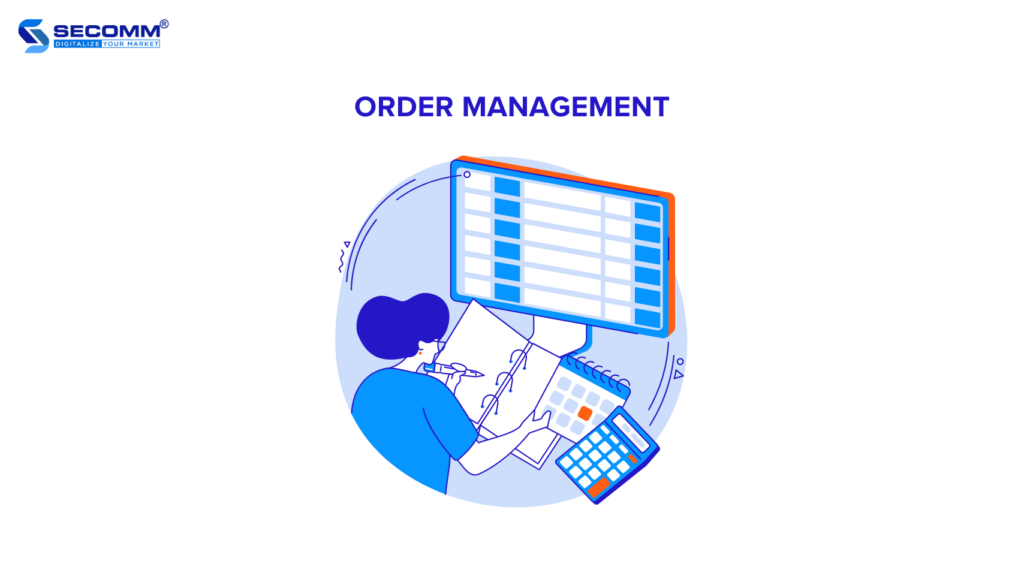
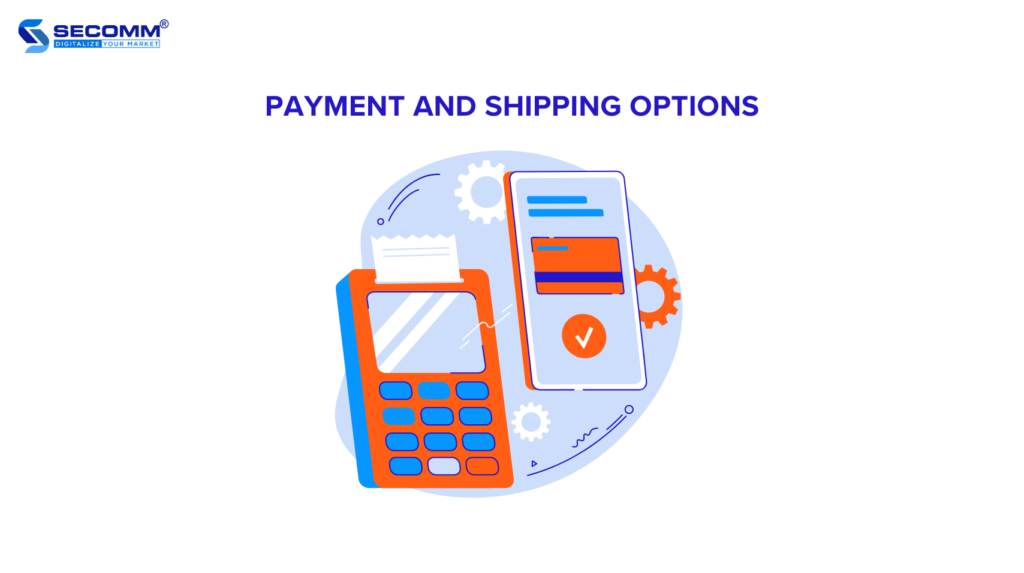
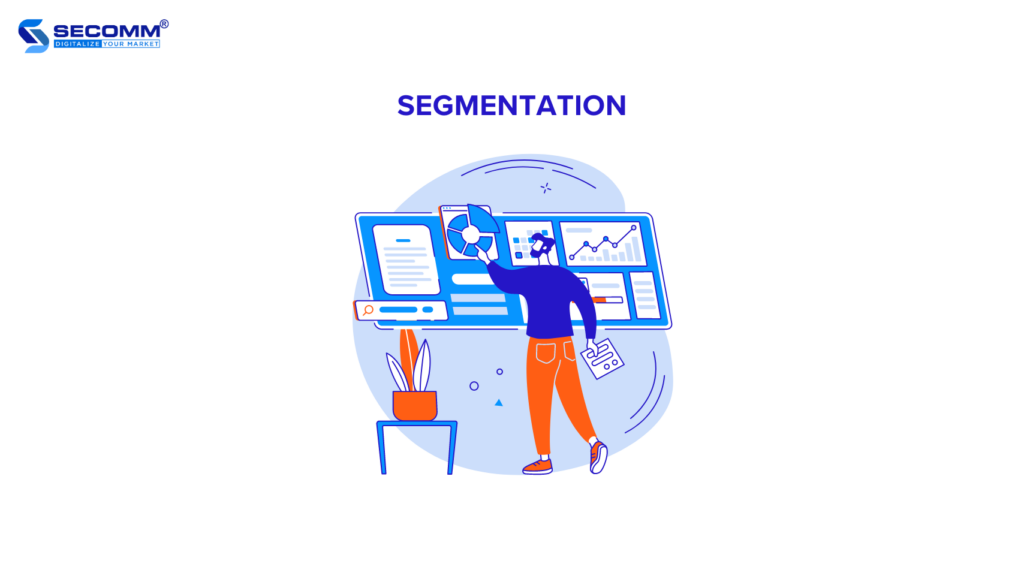

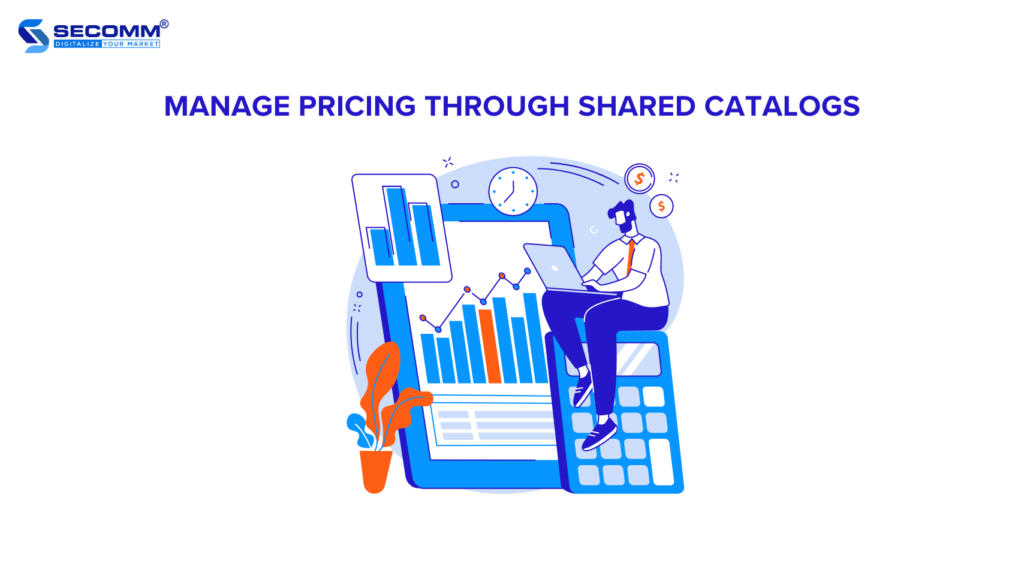
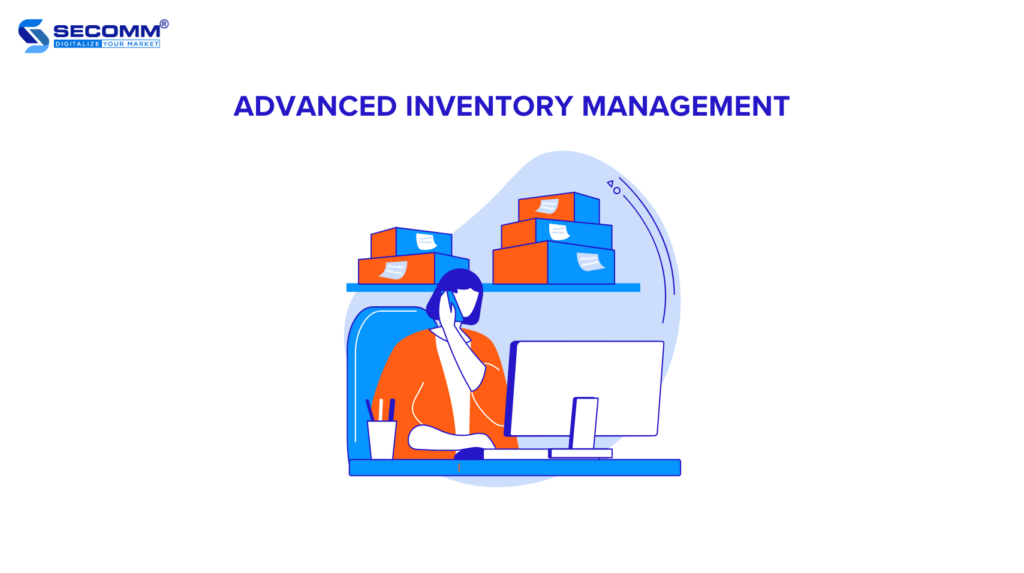


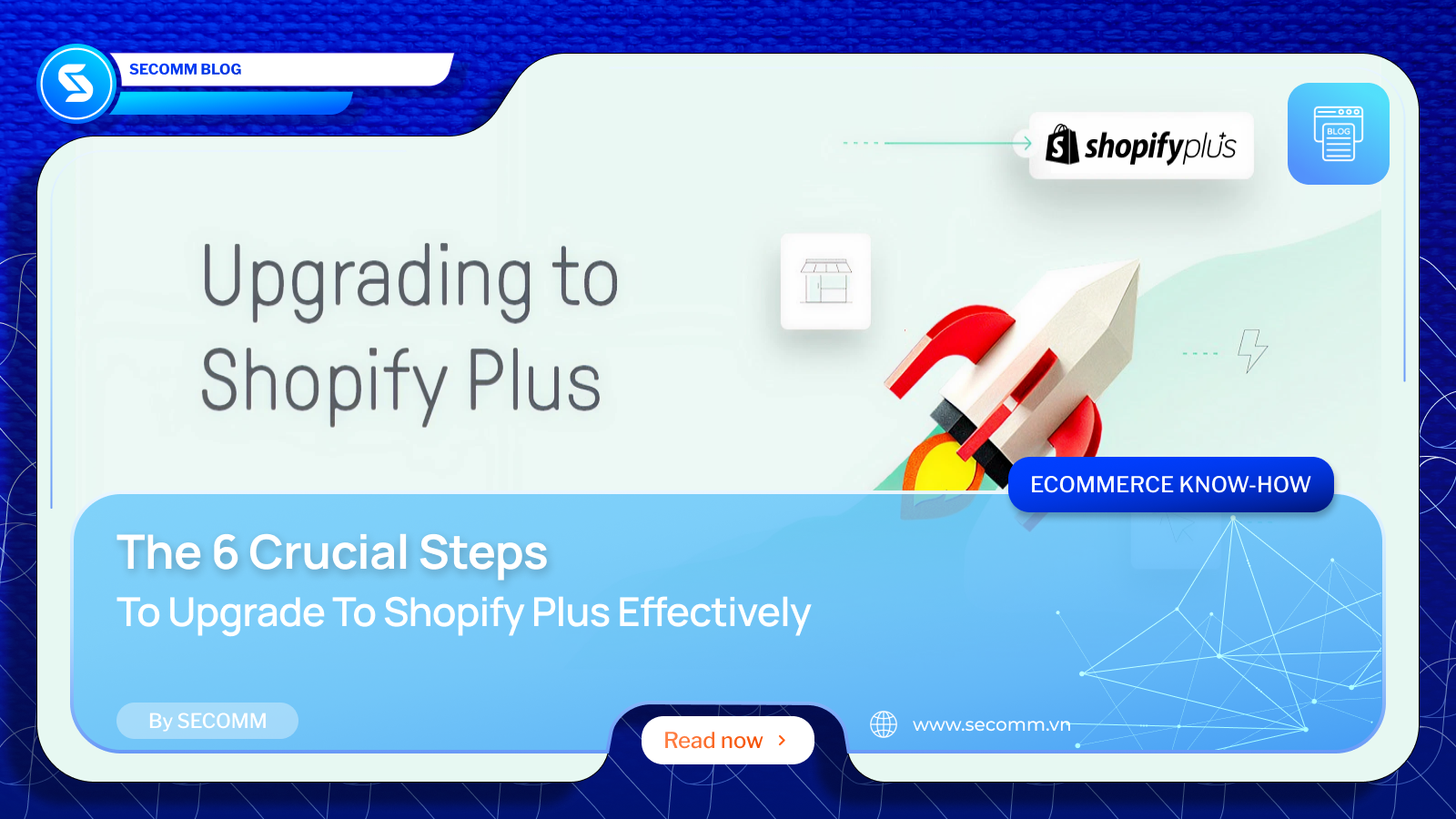
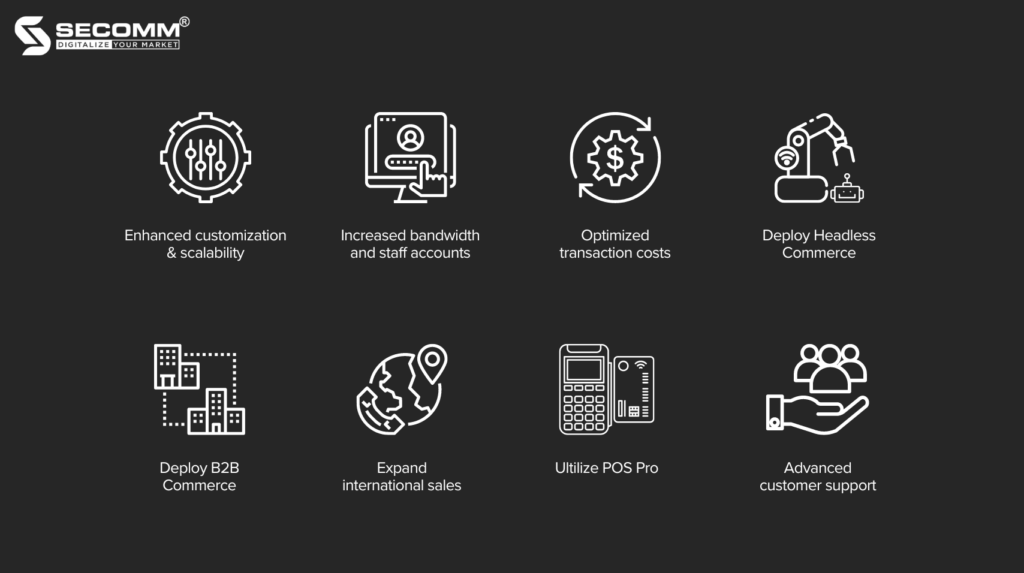
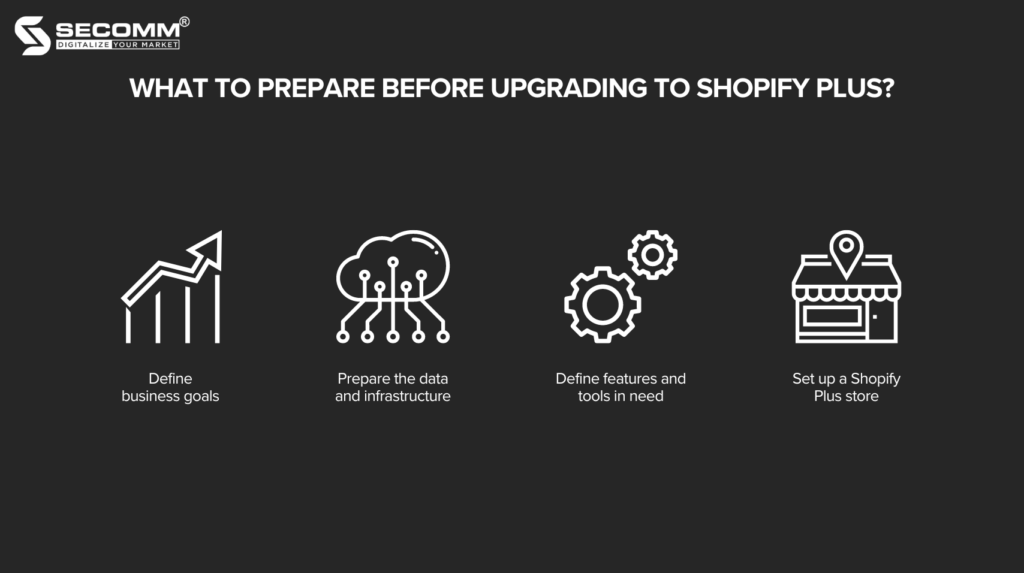
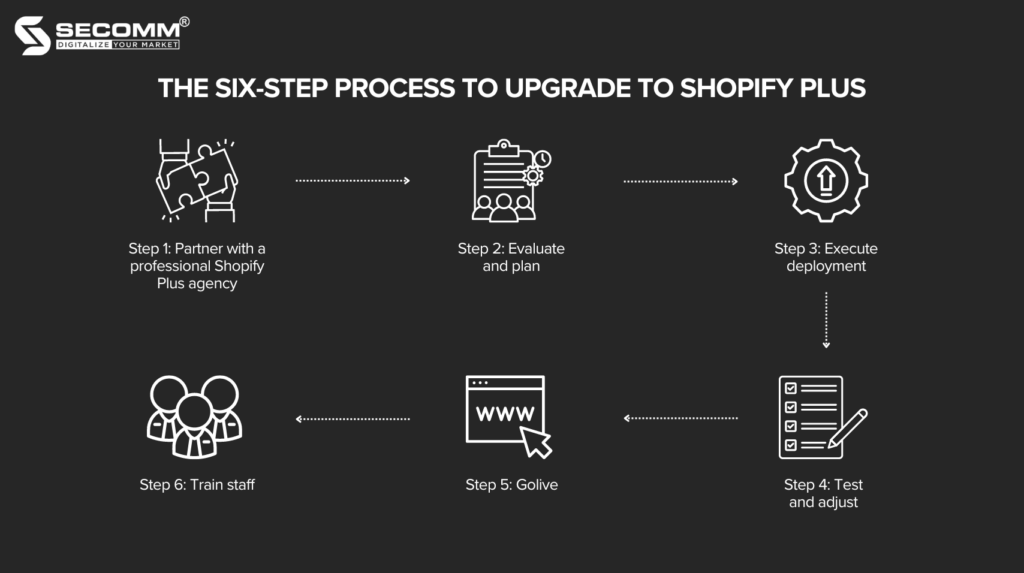





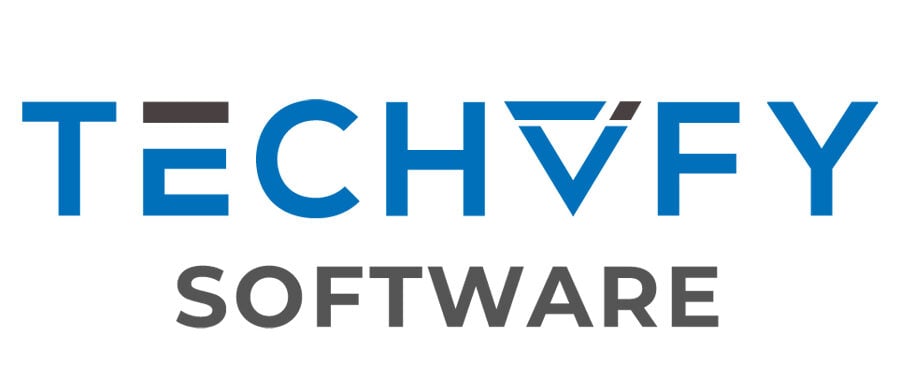

















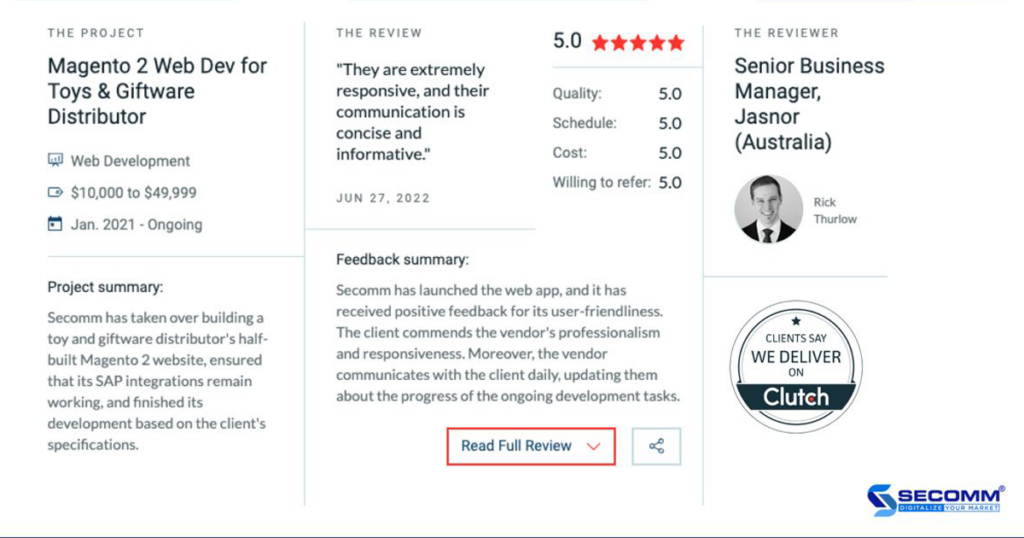
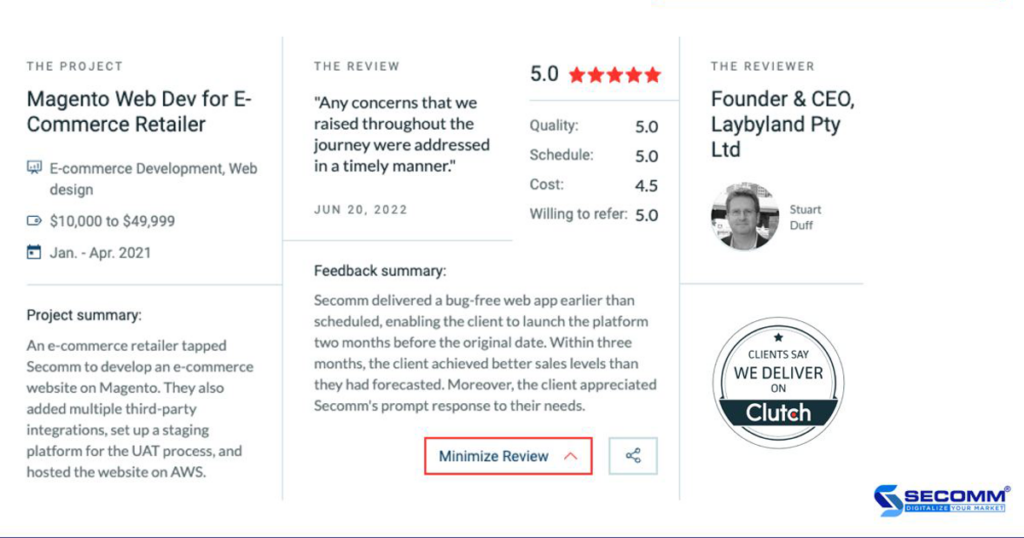
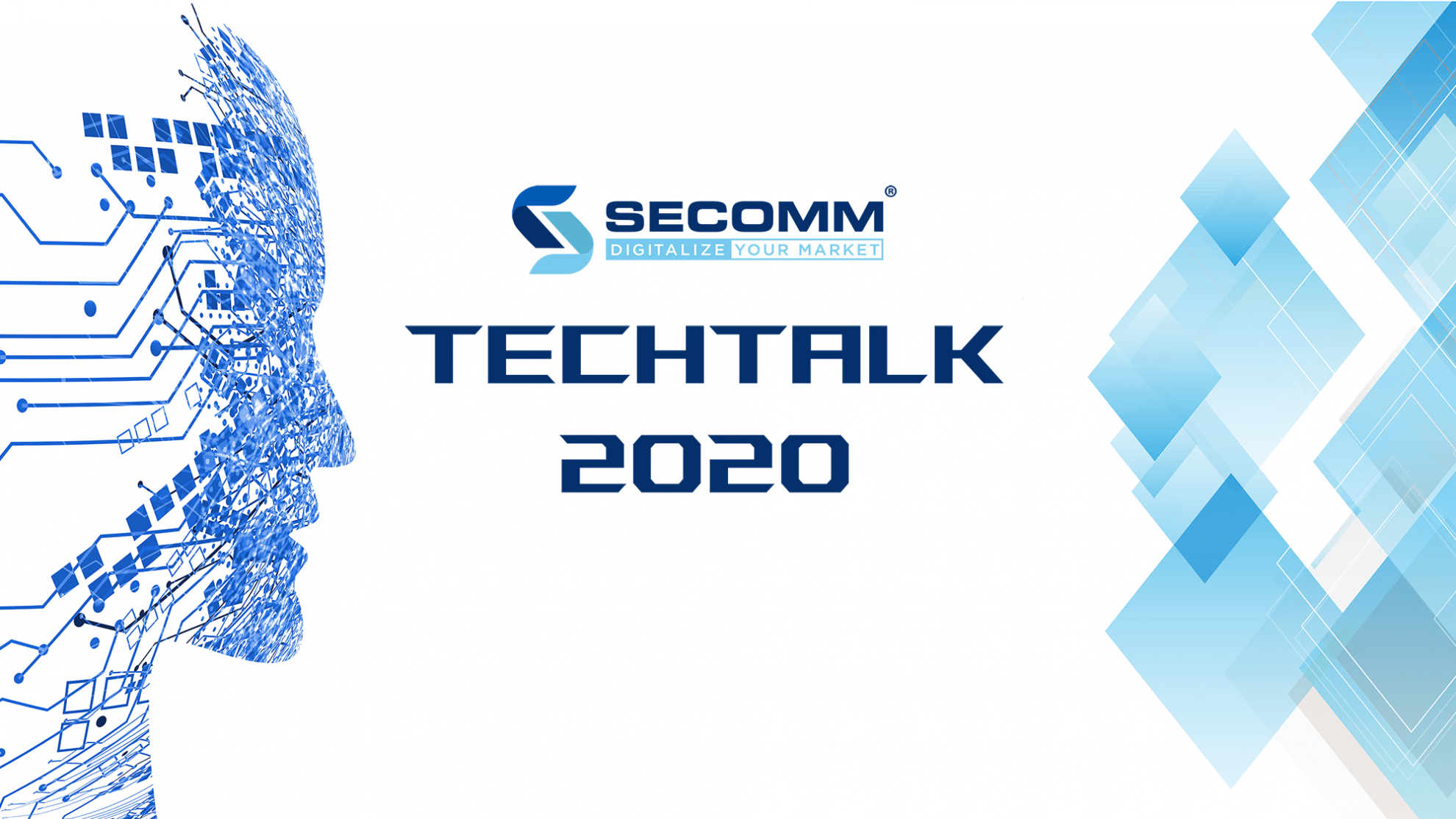
















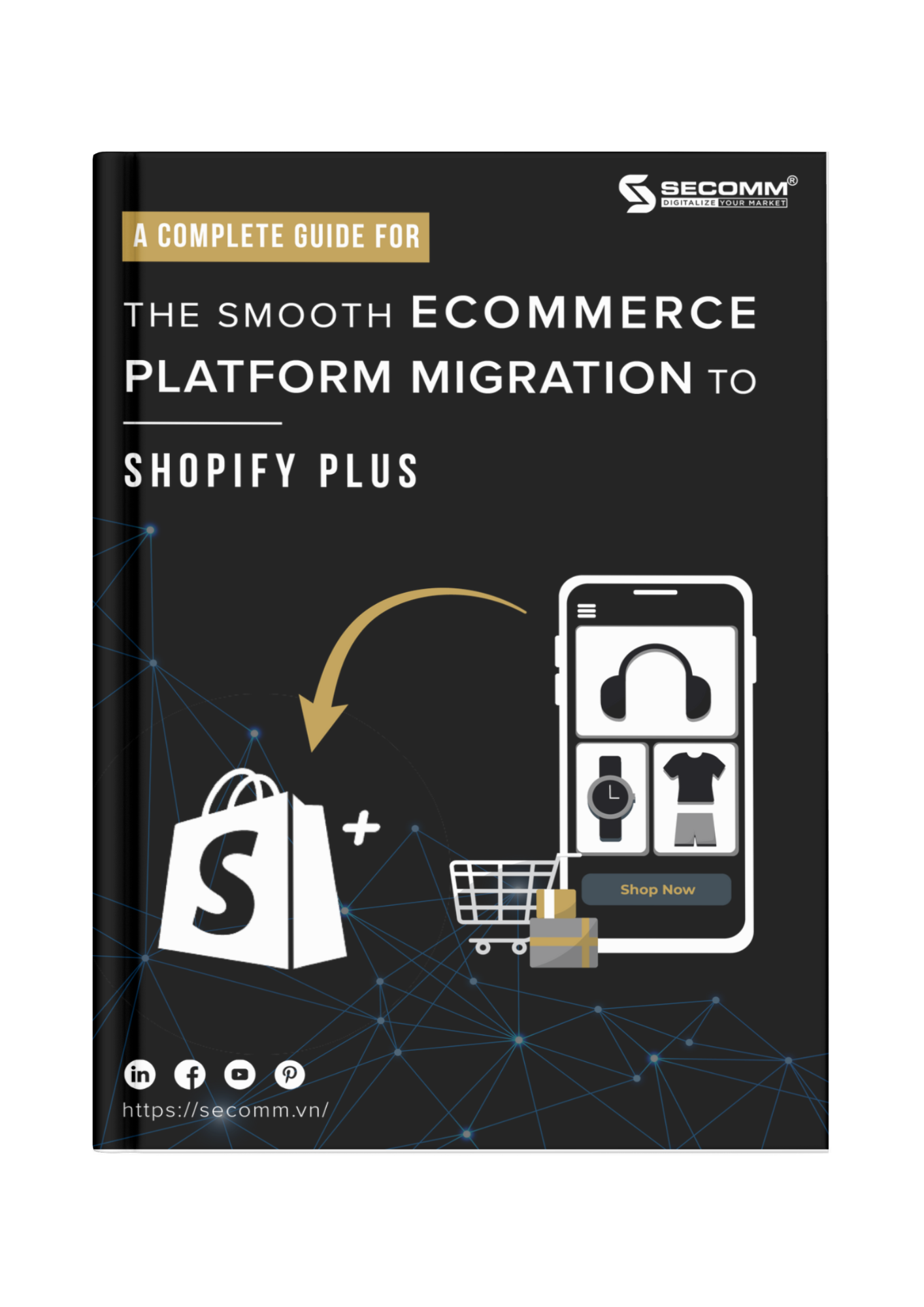



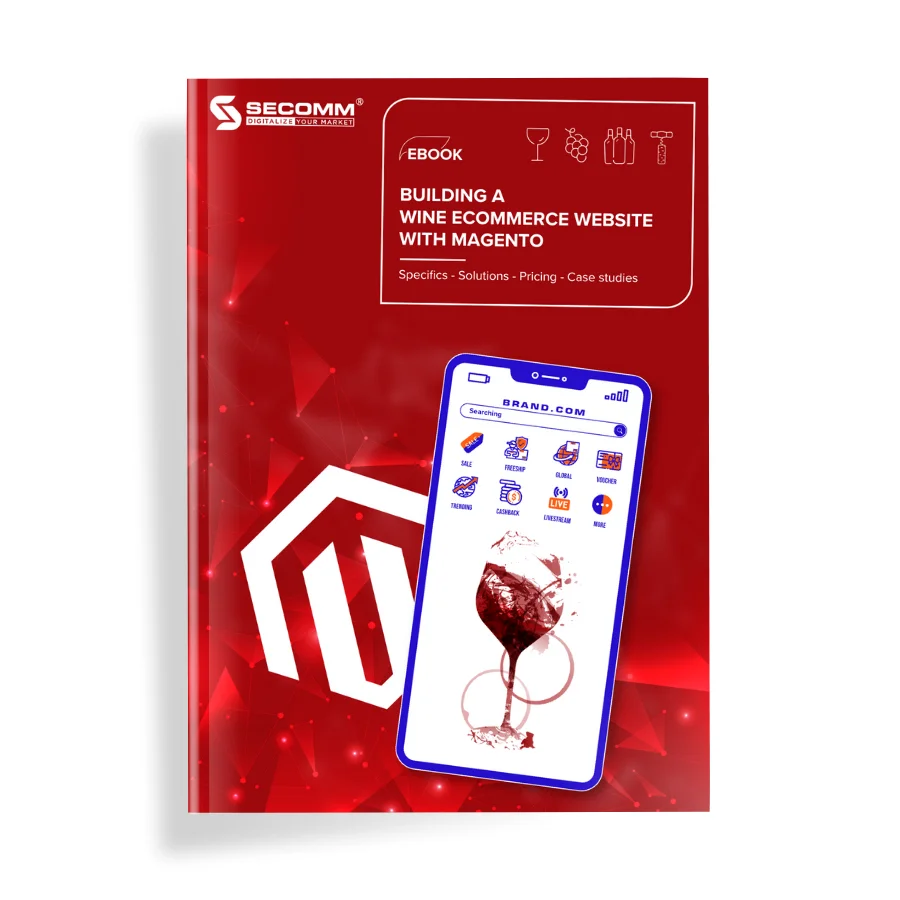
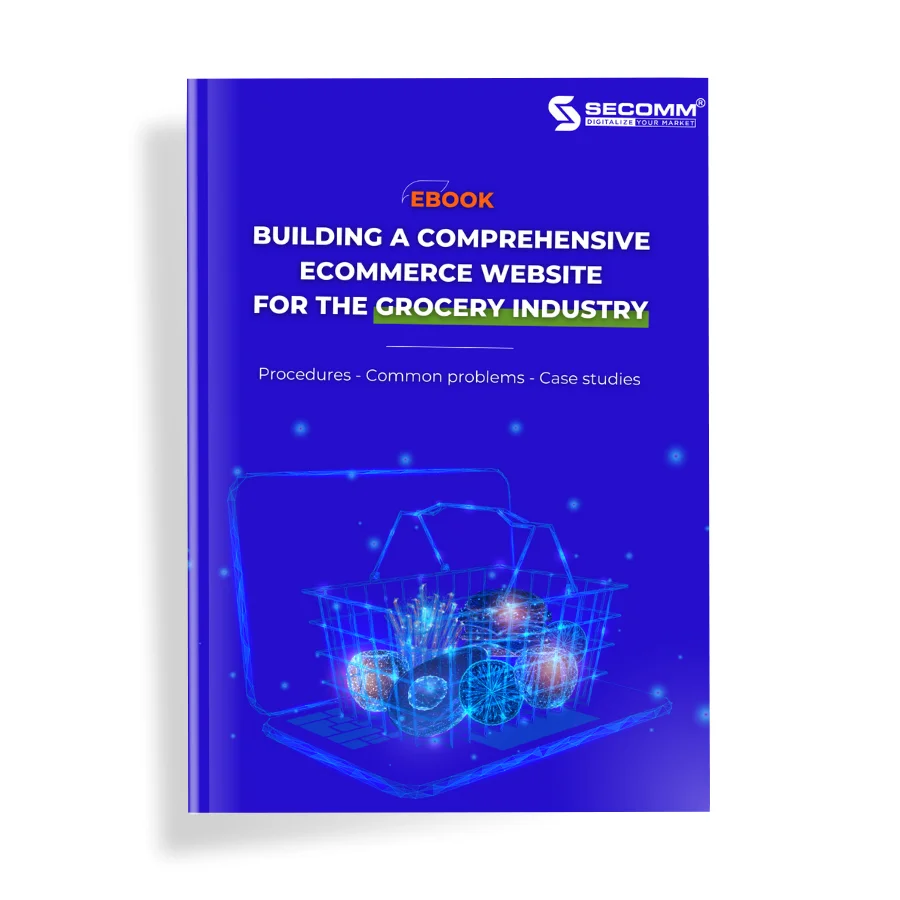
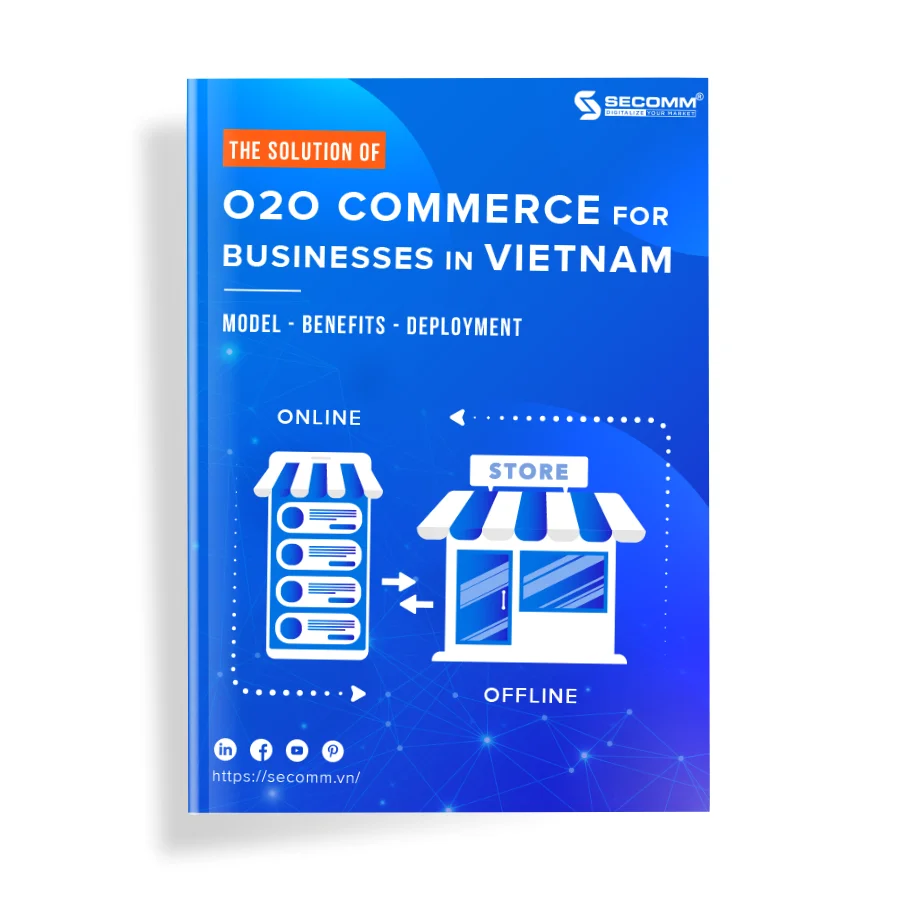
Comment (0)